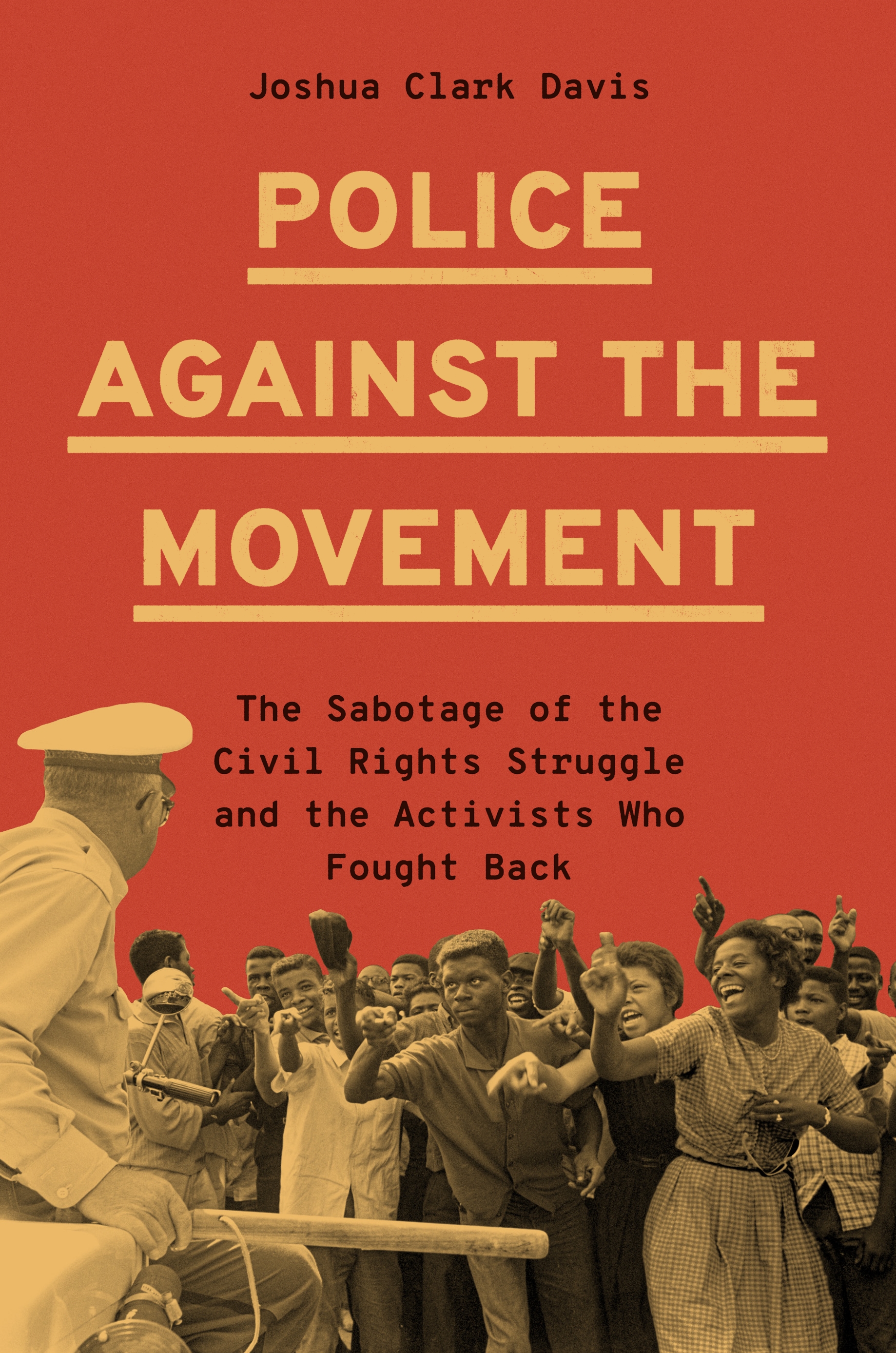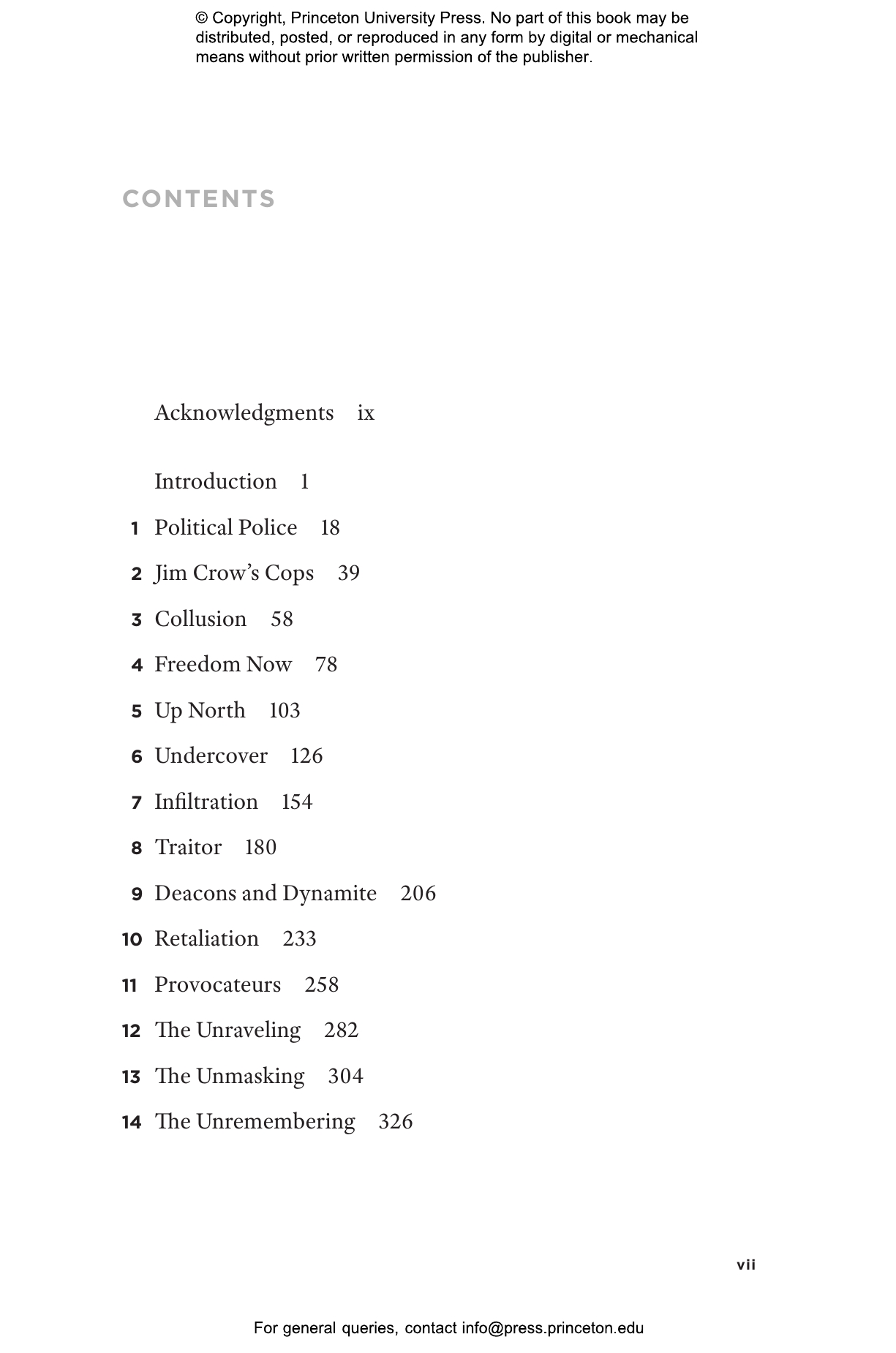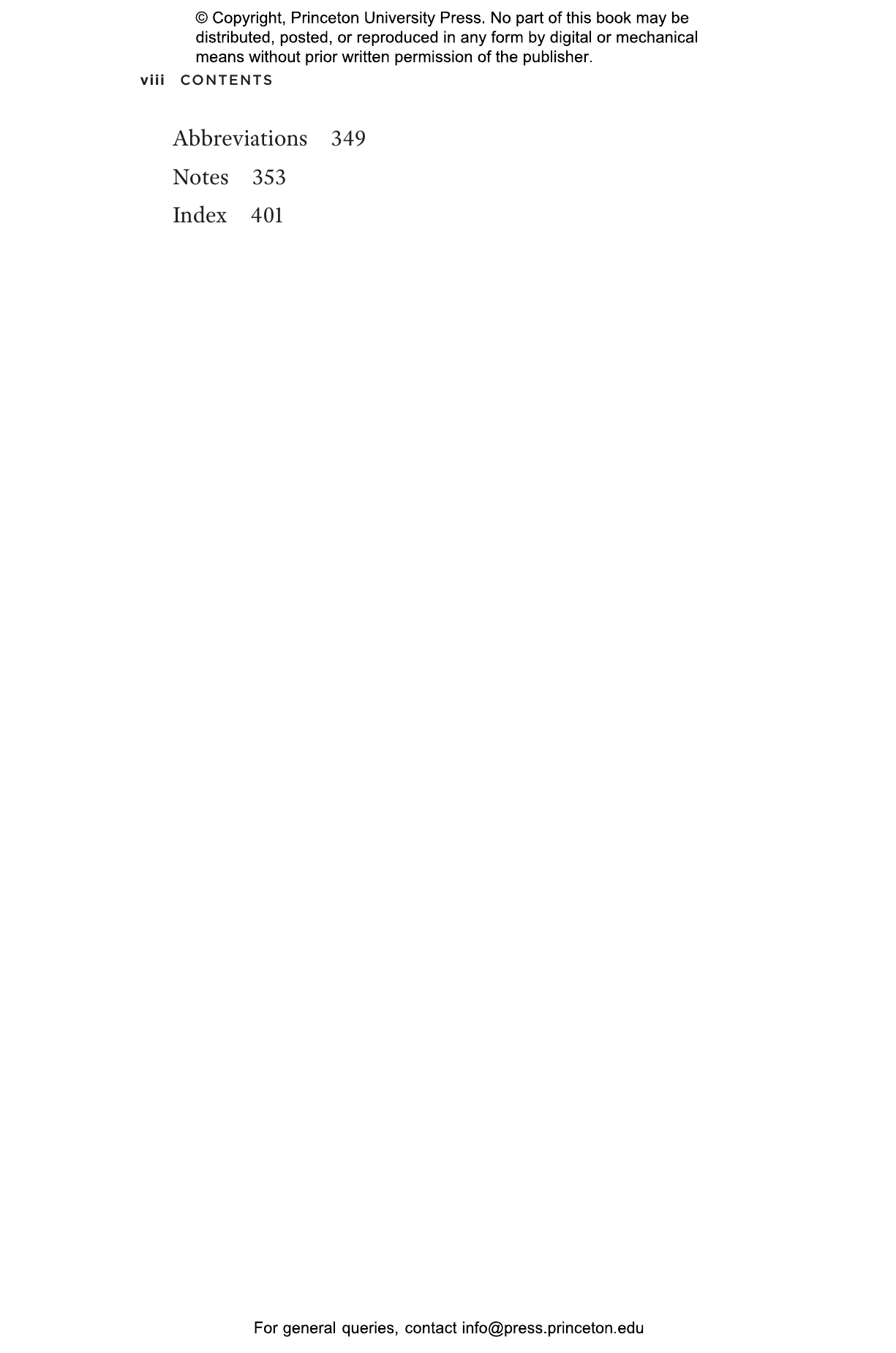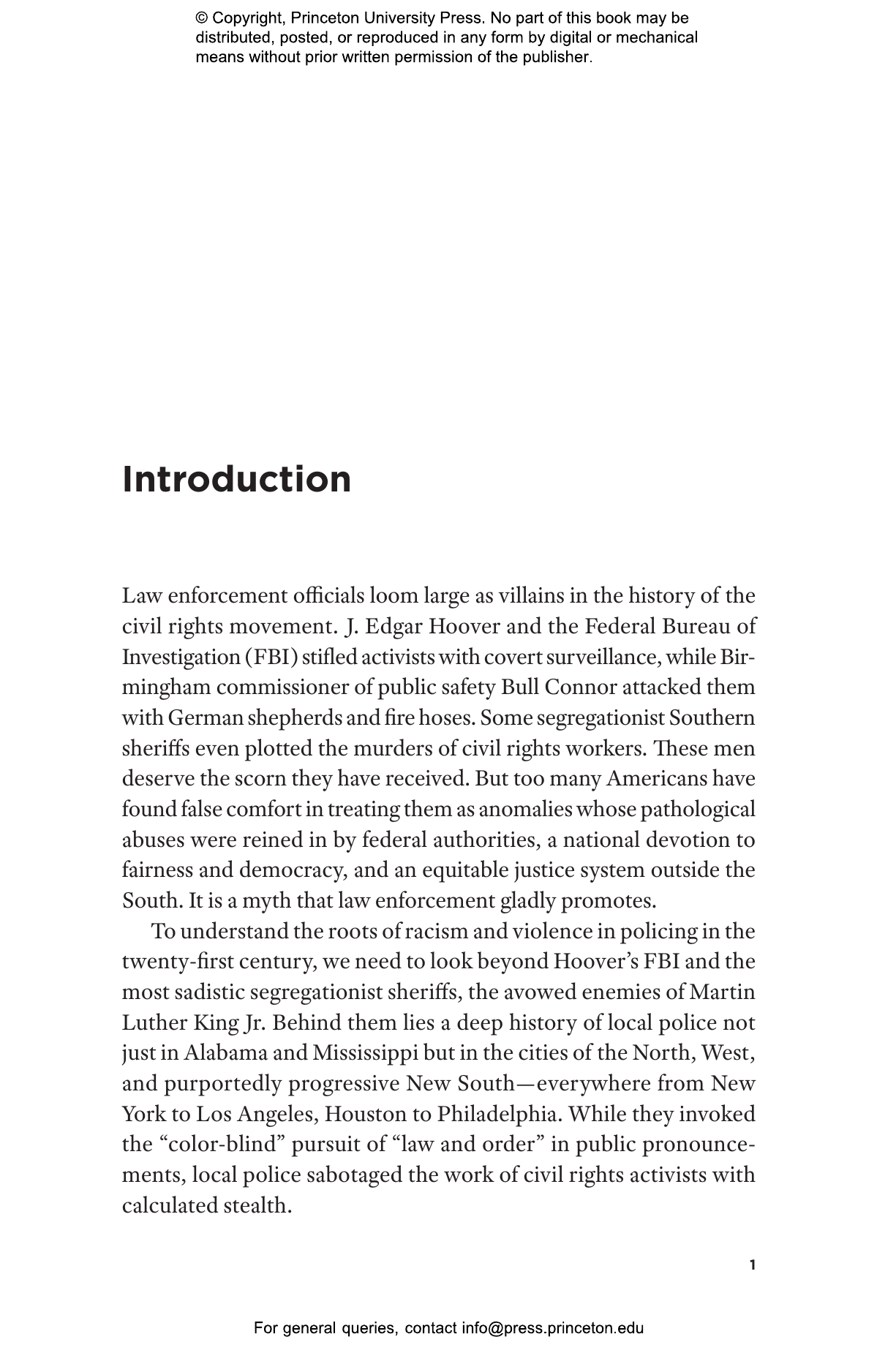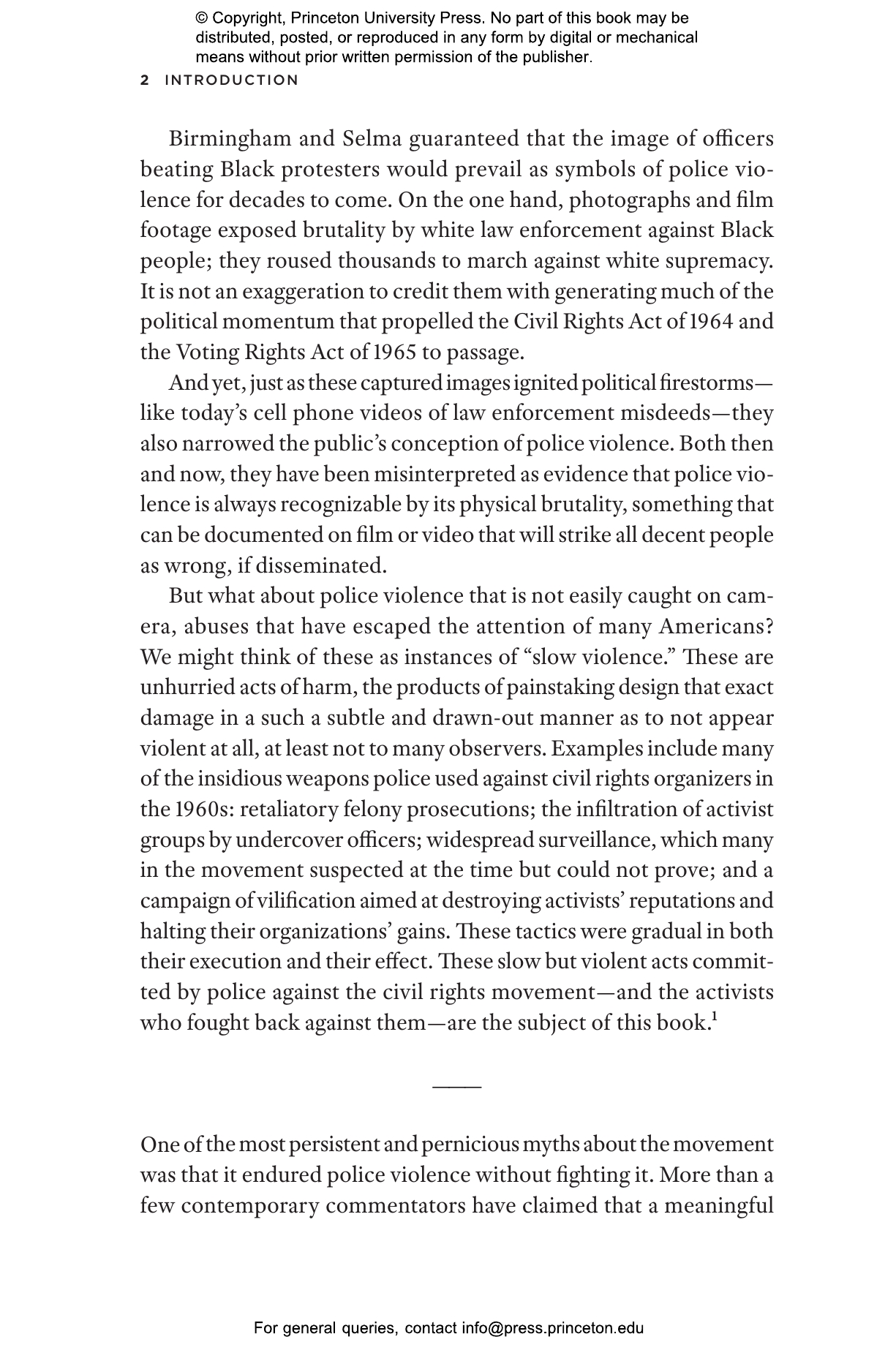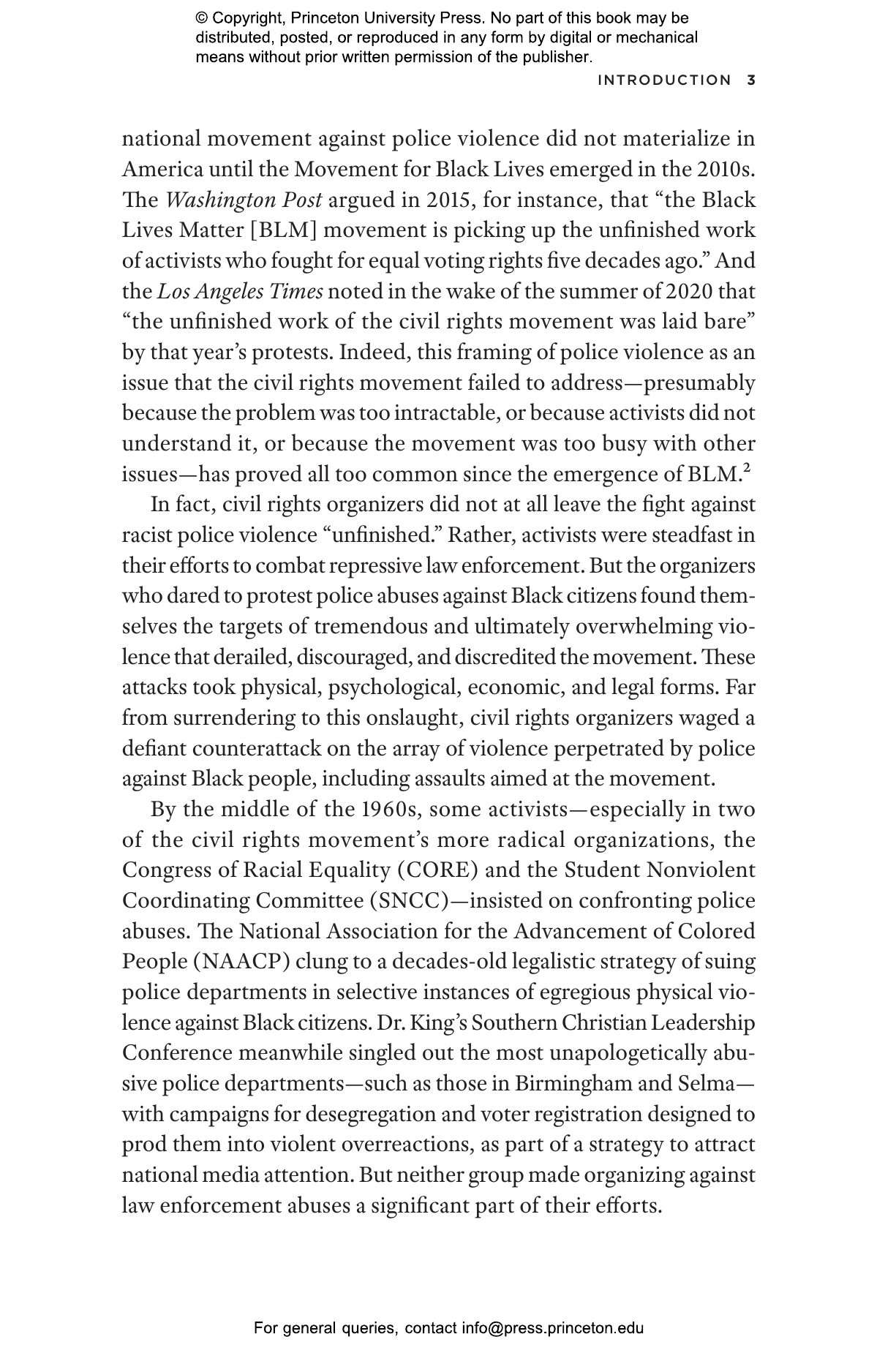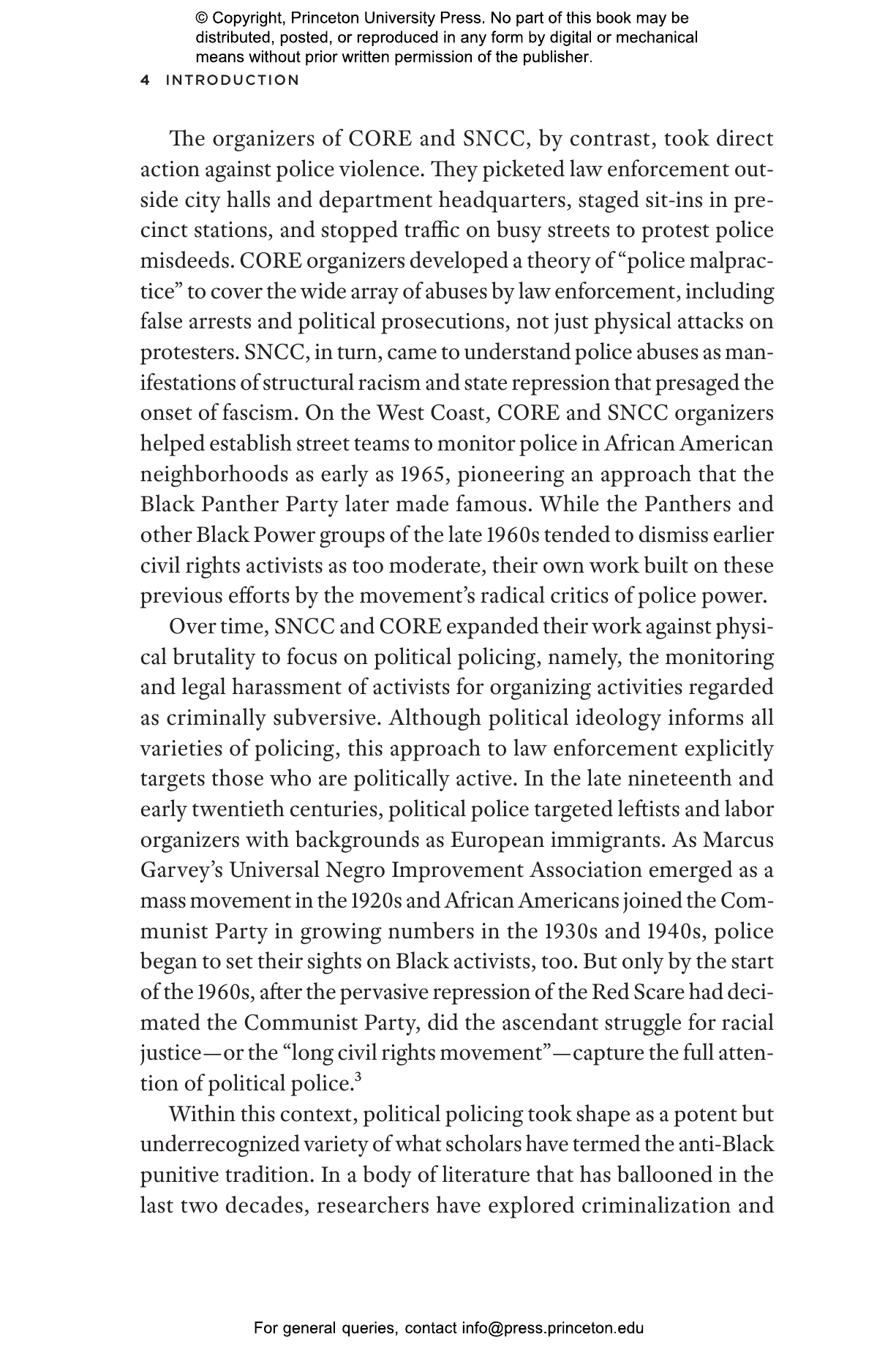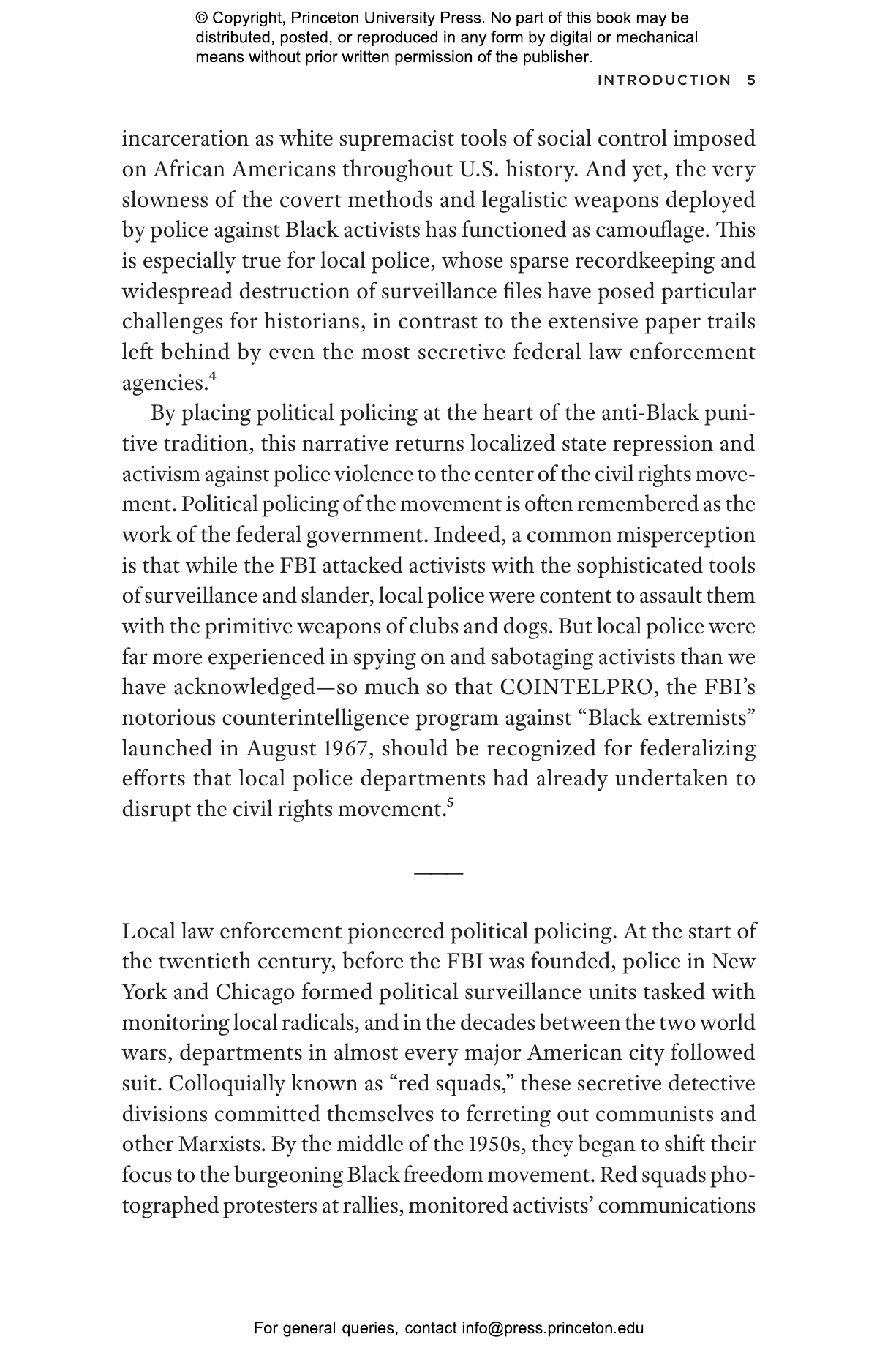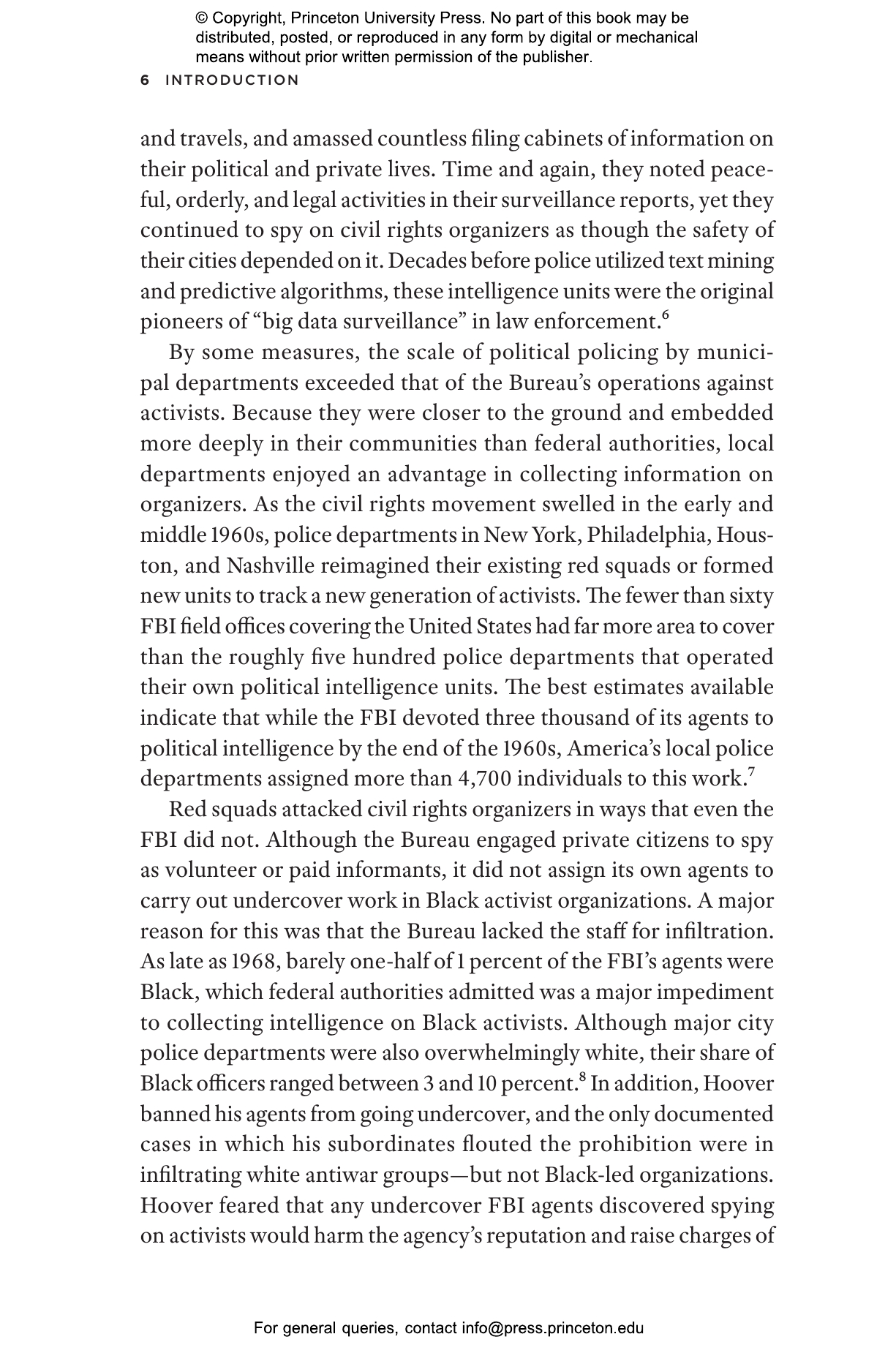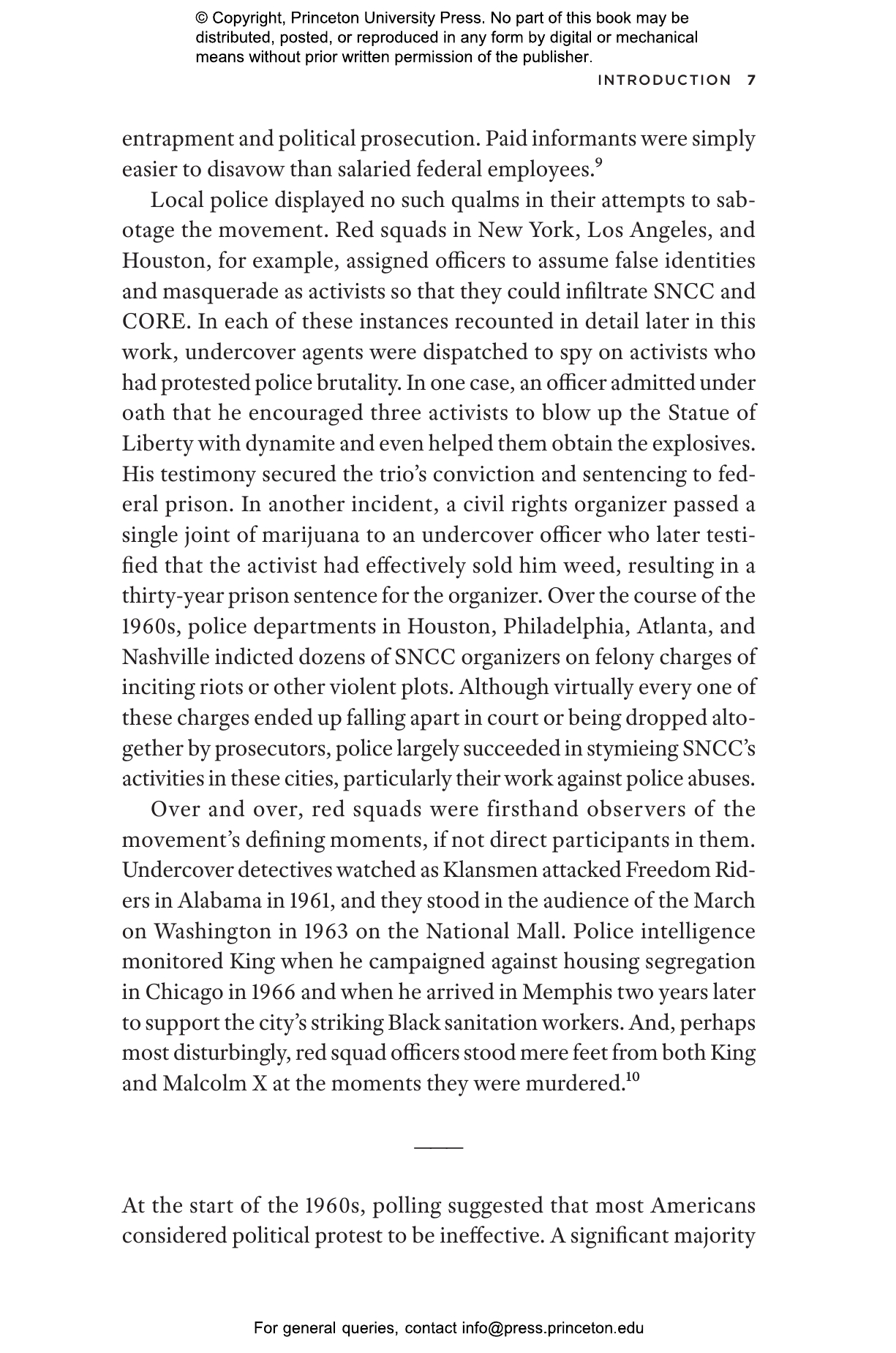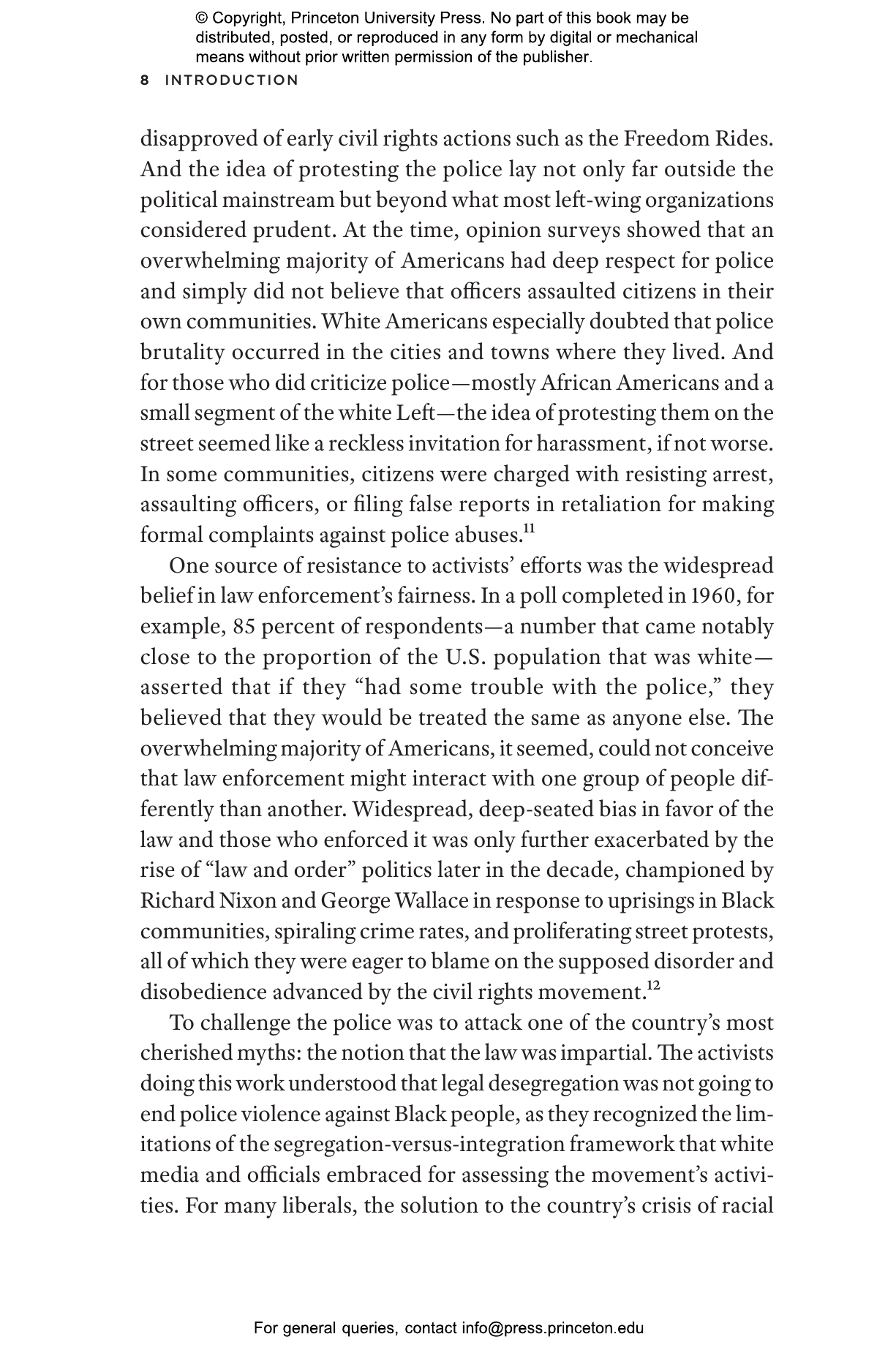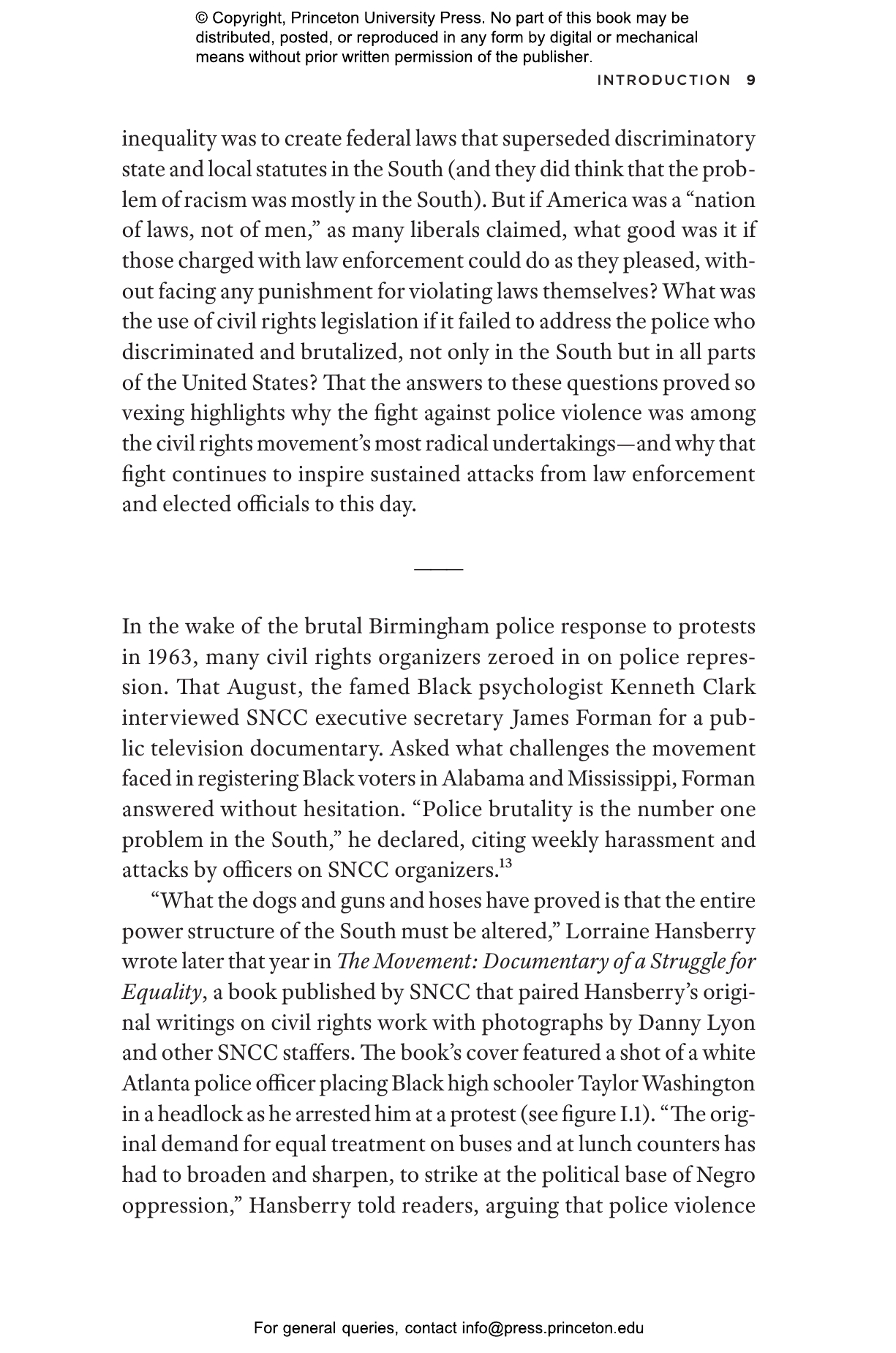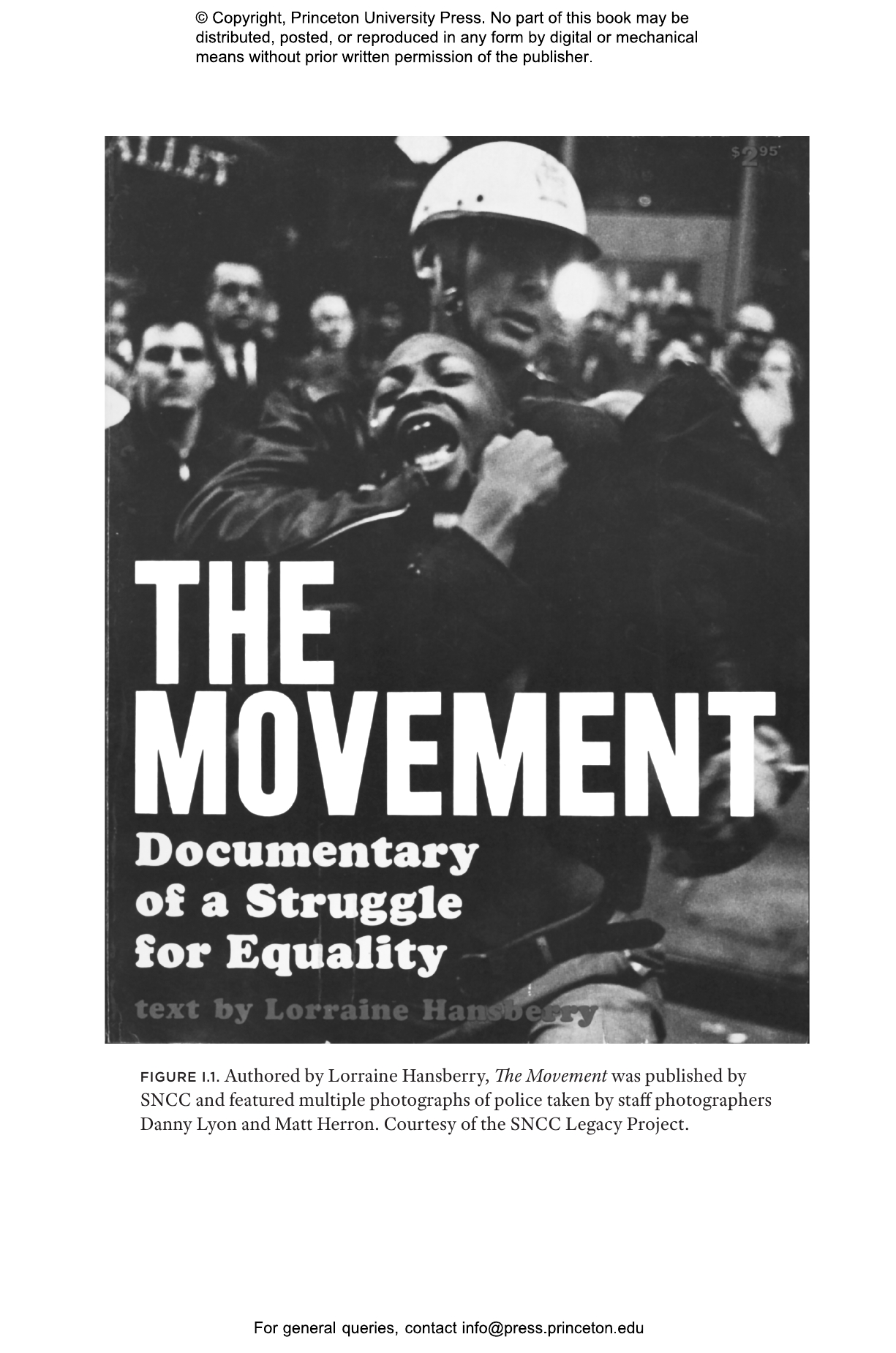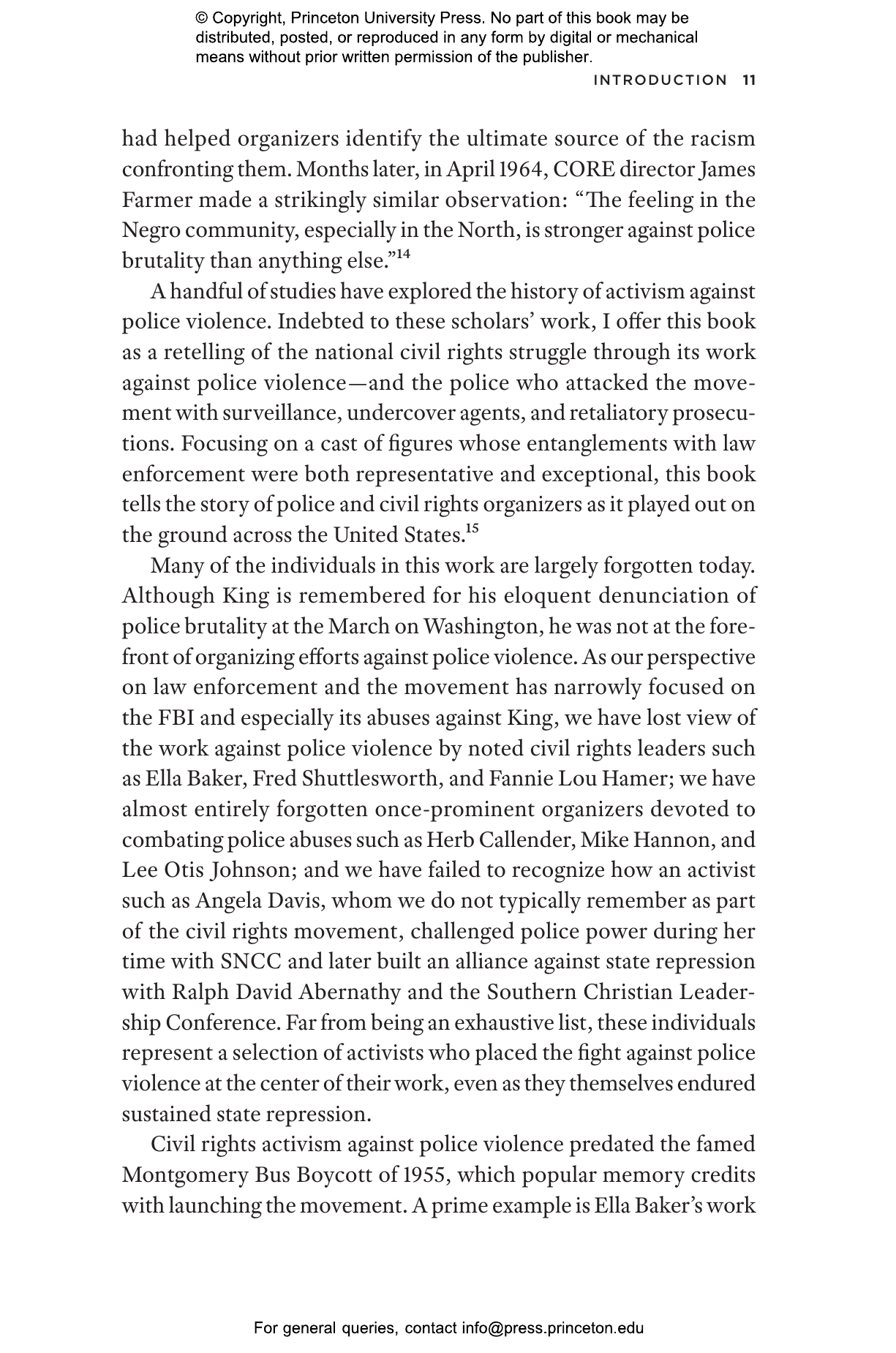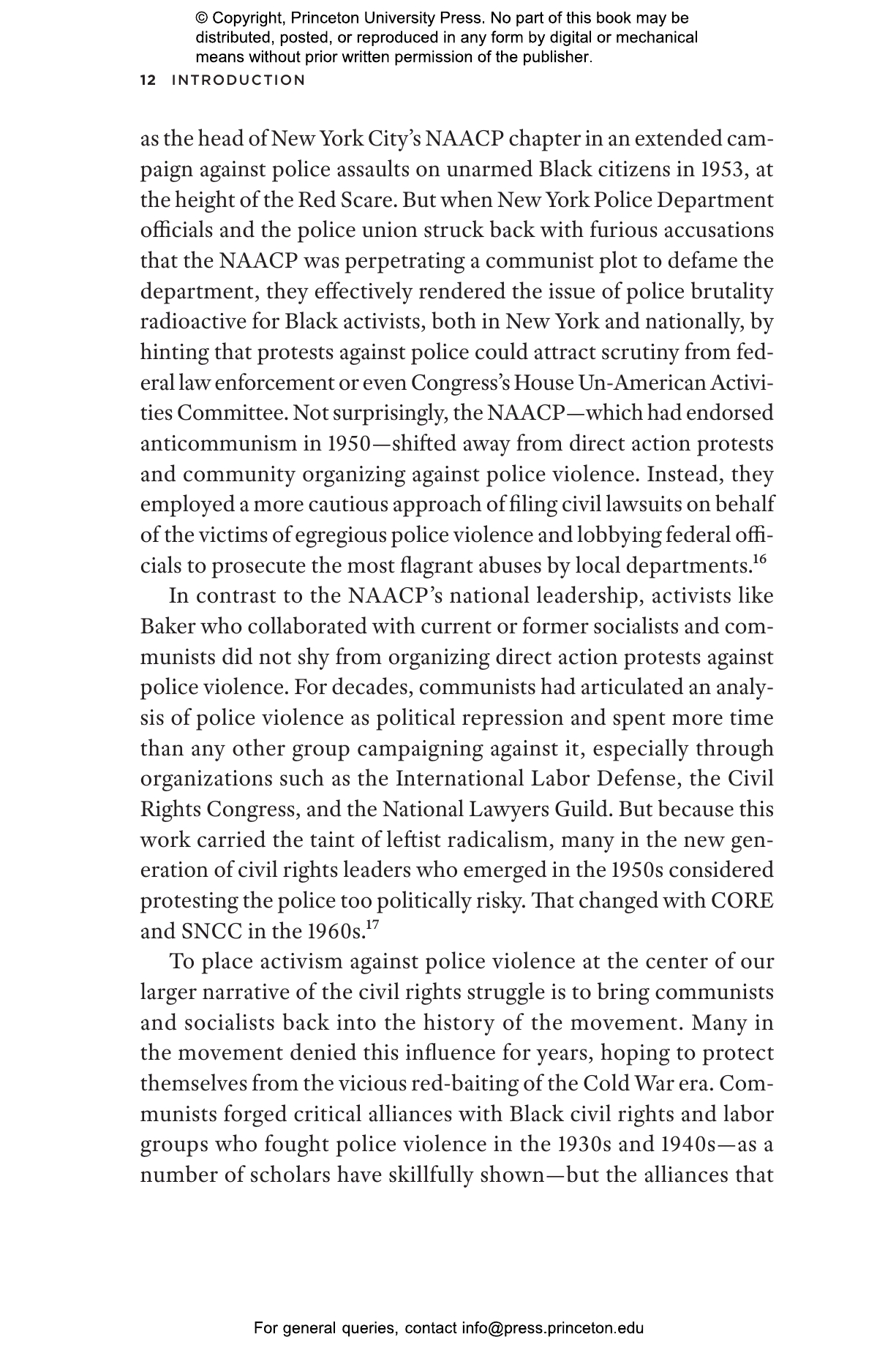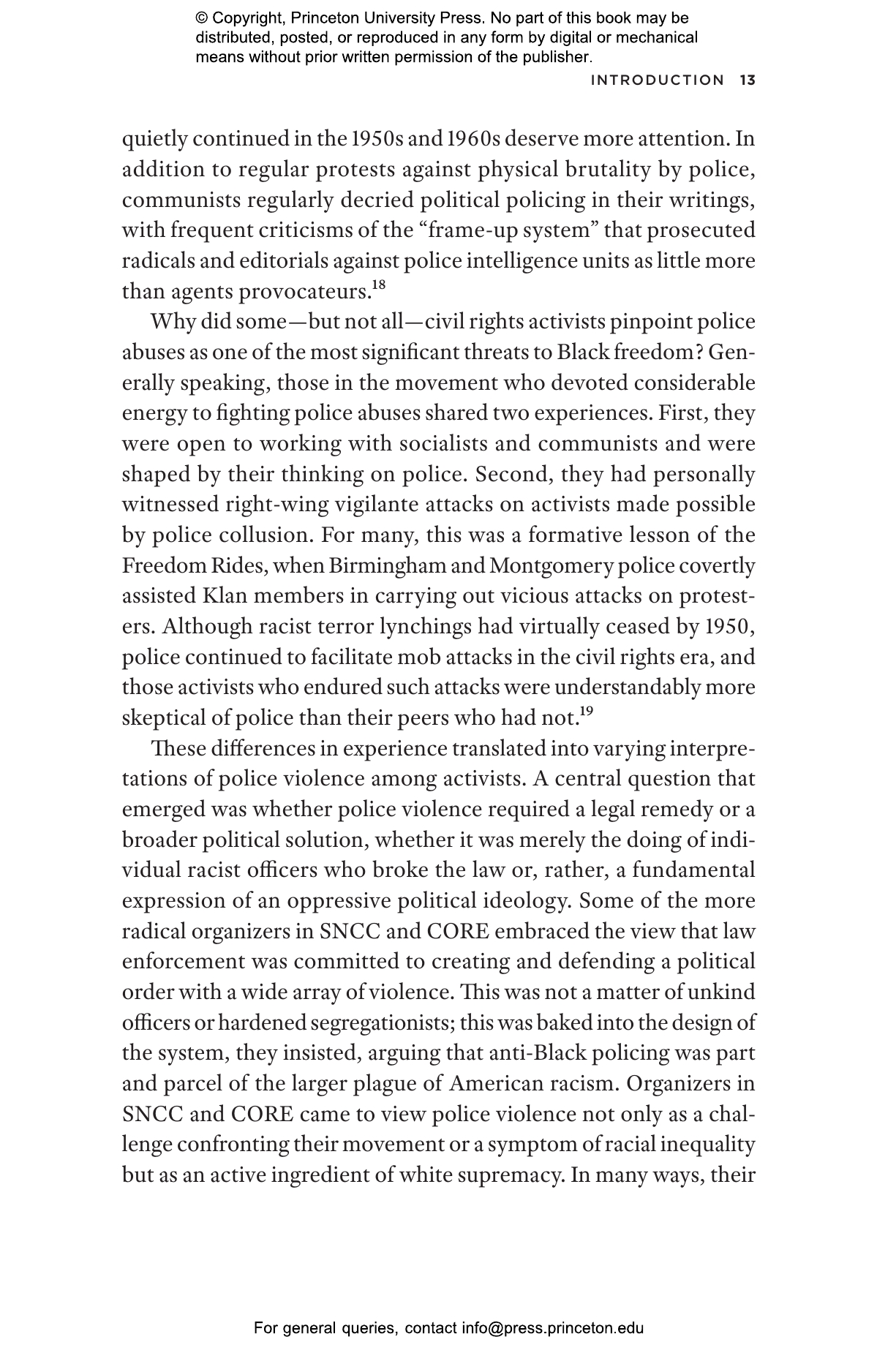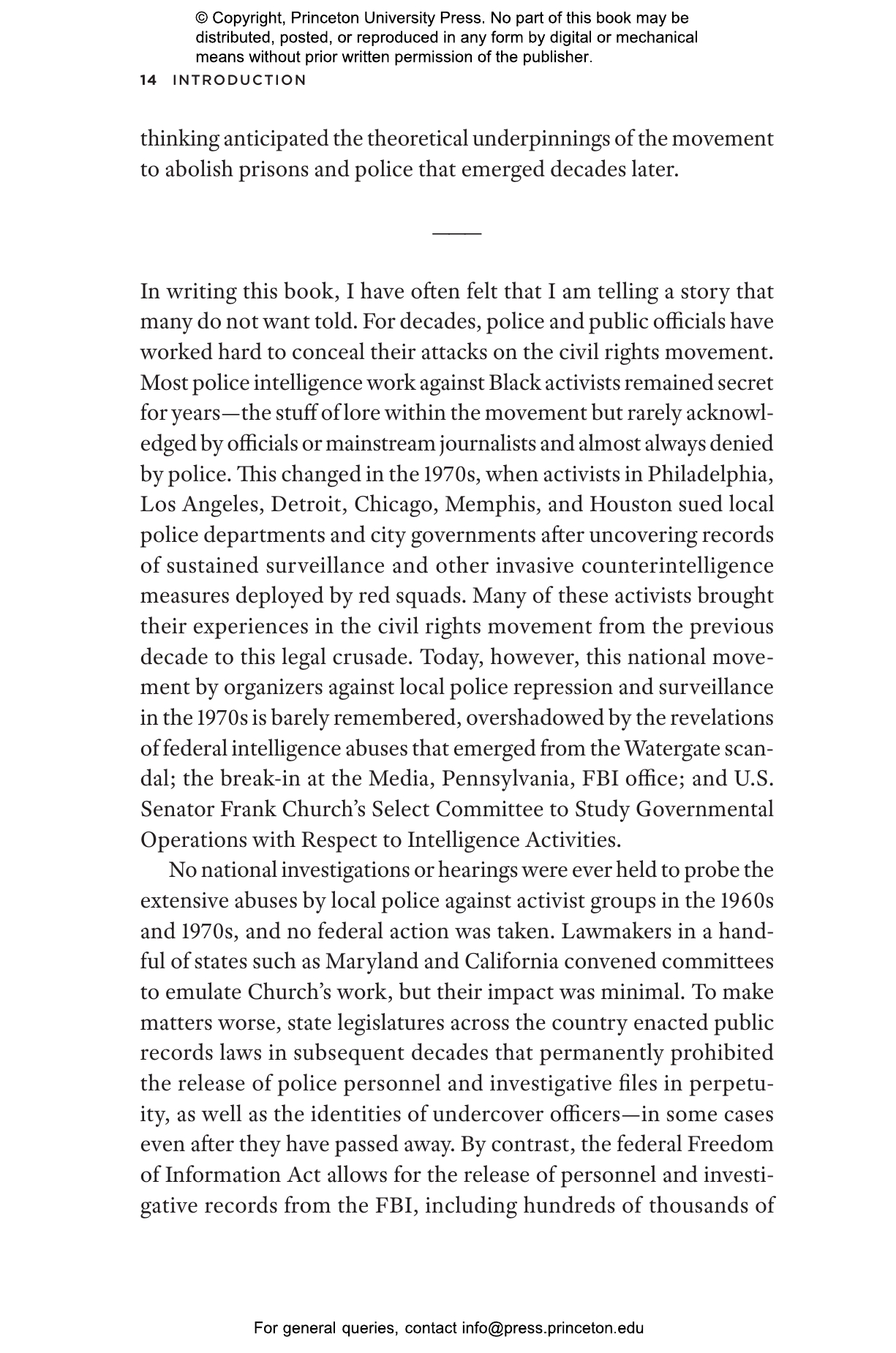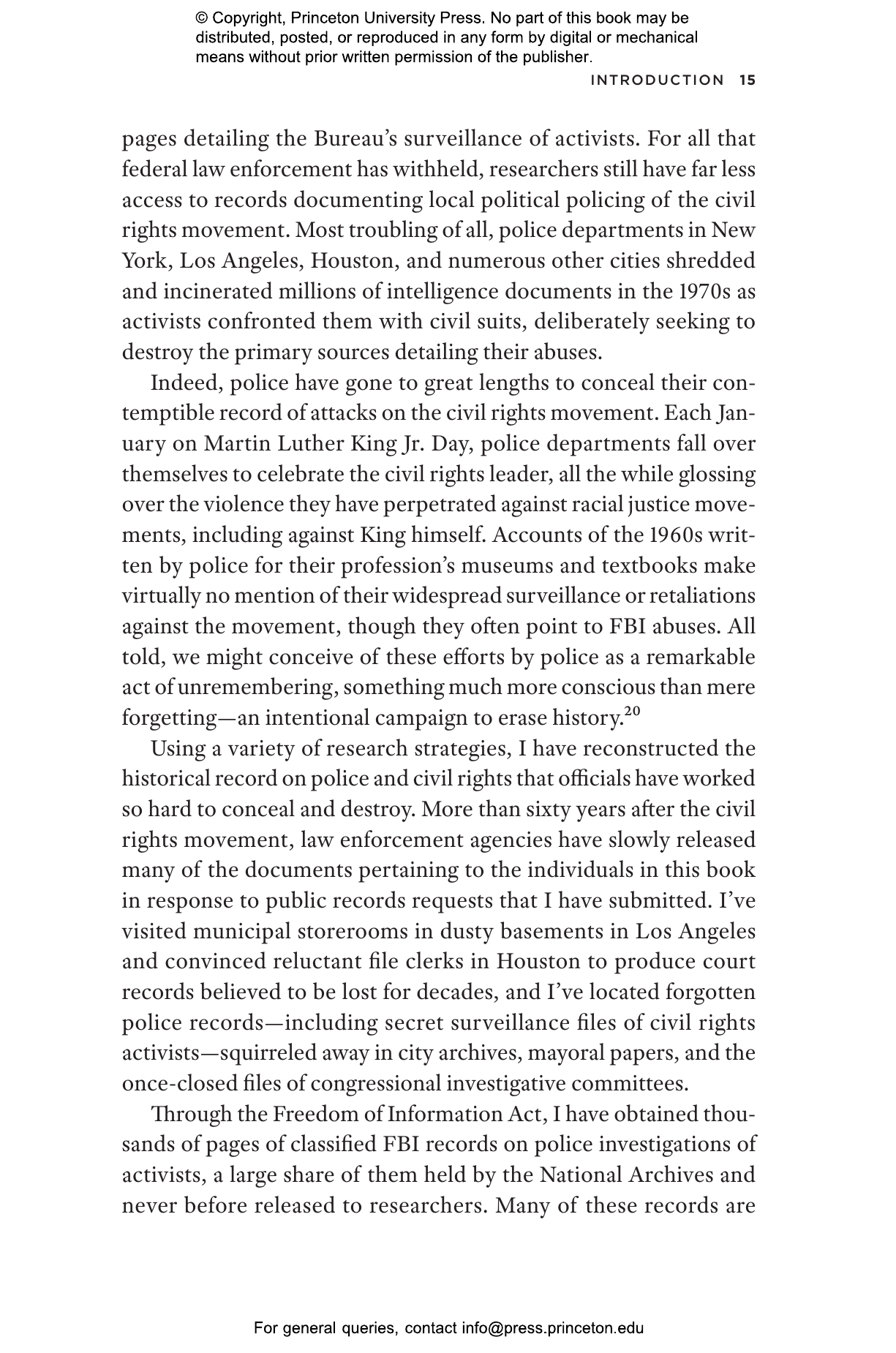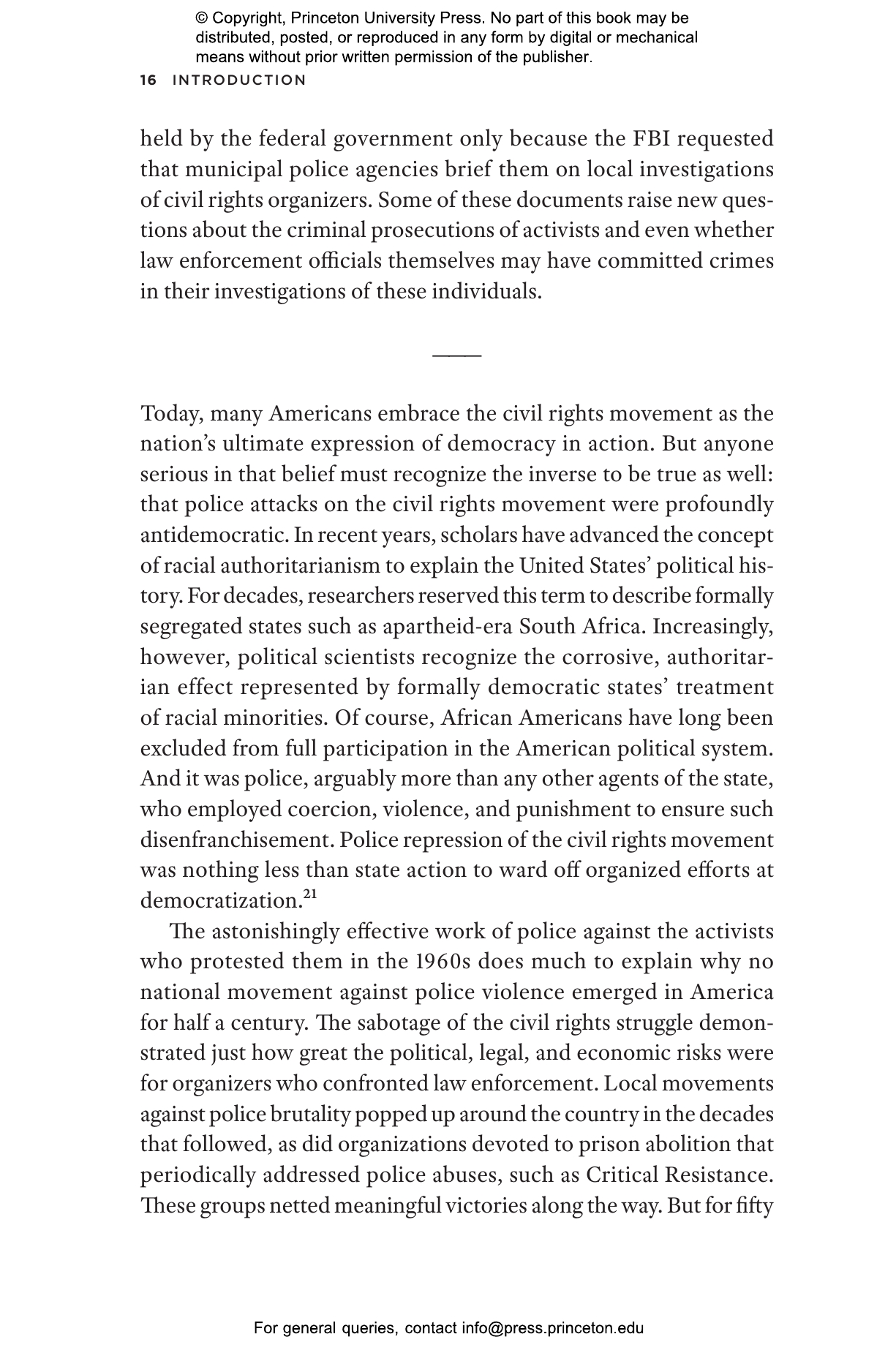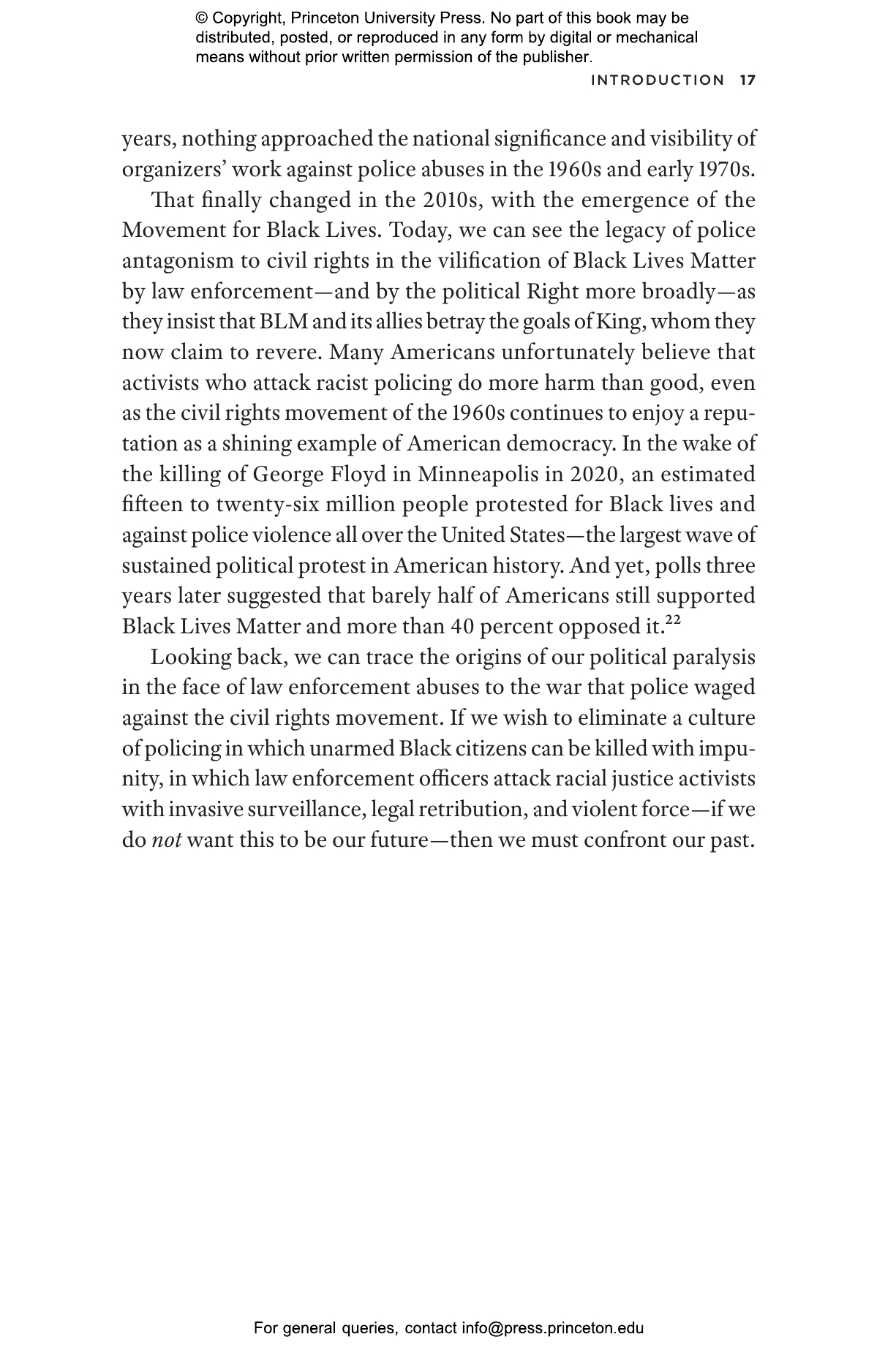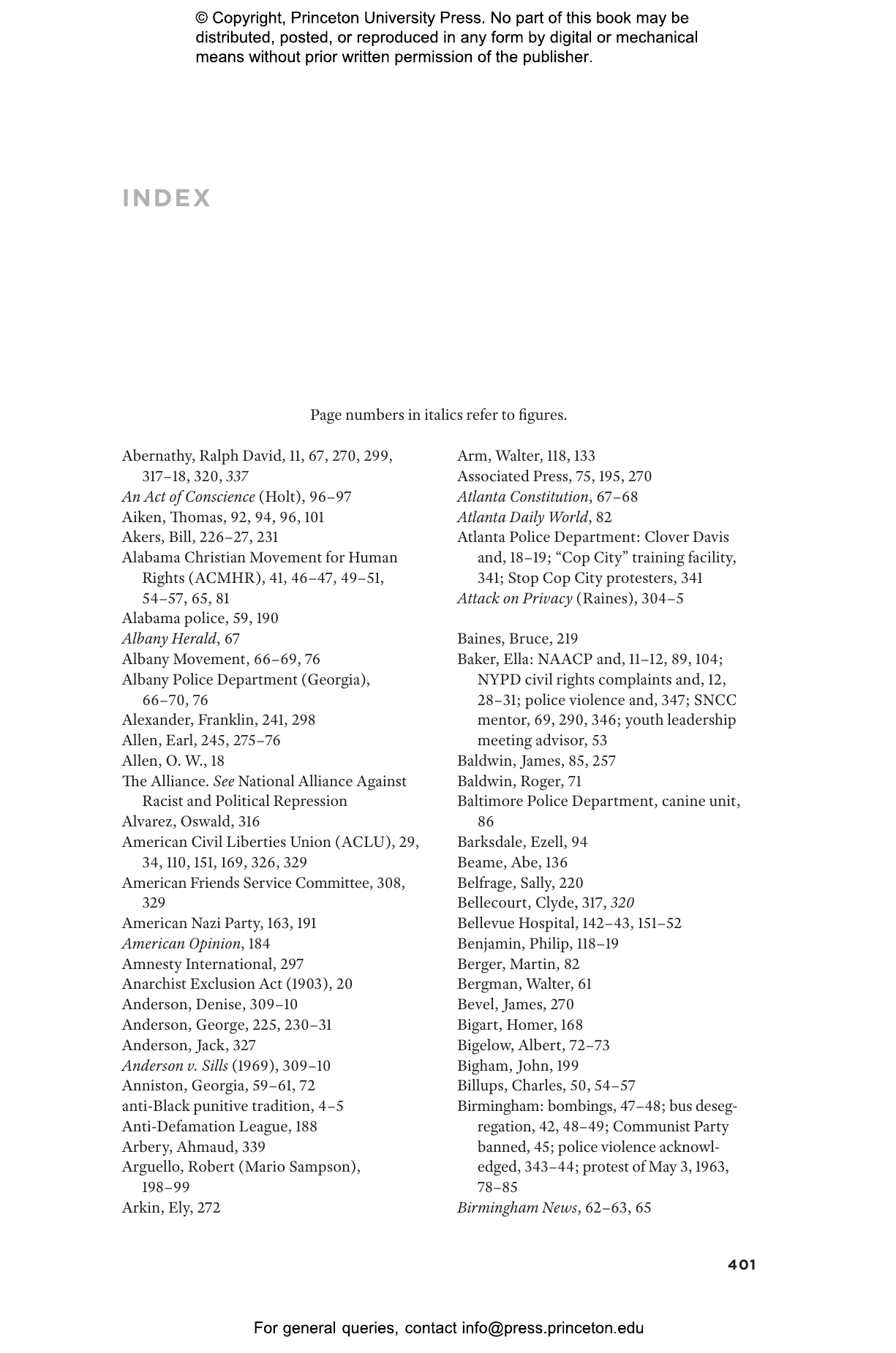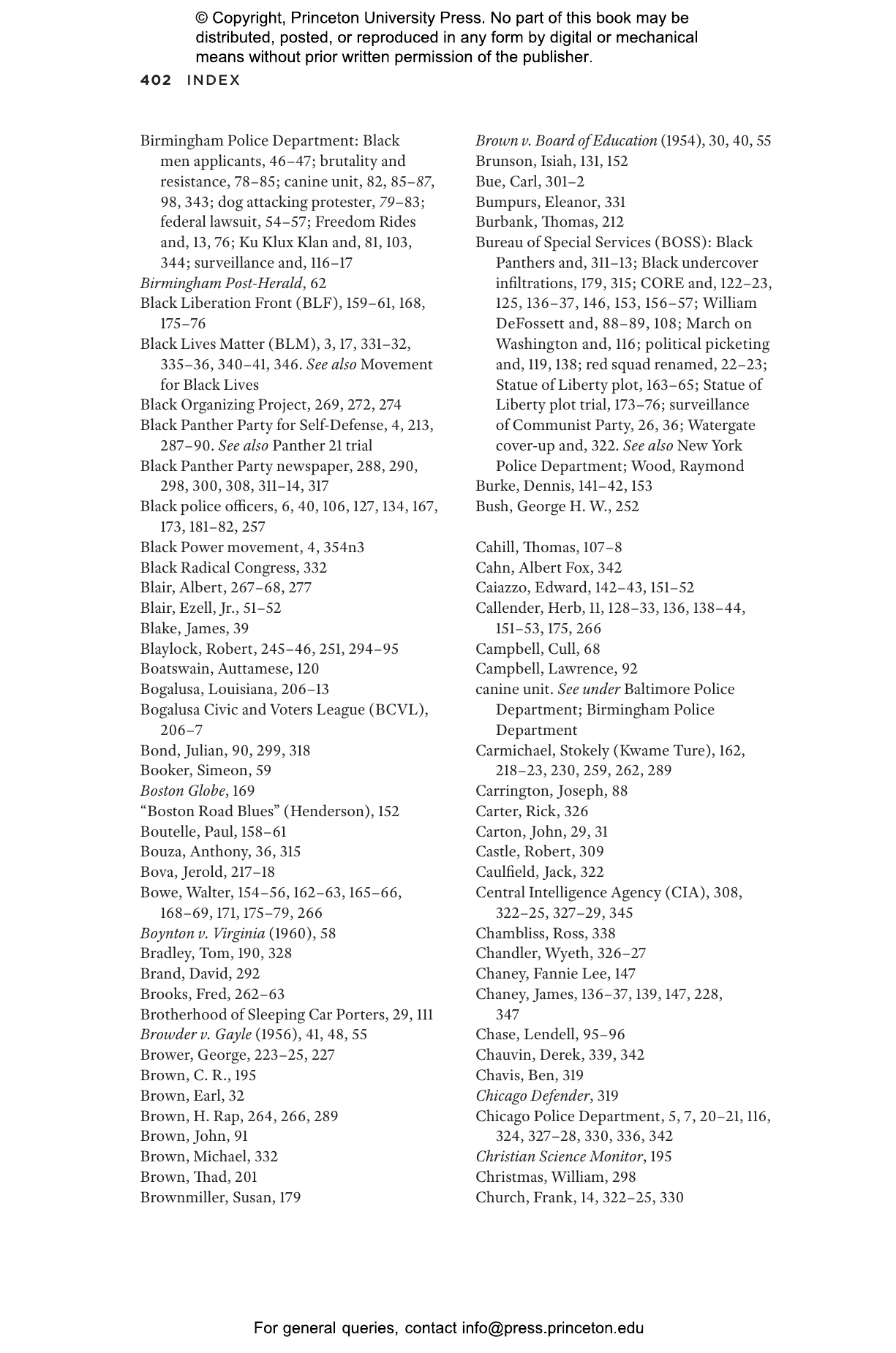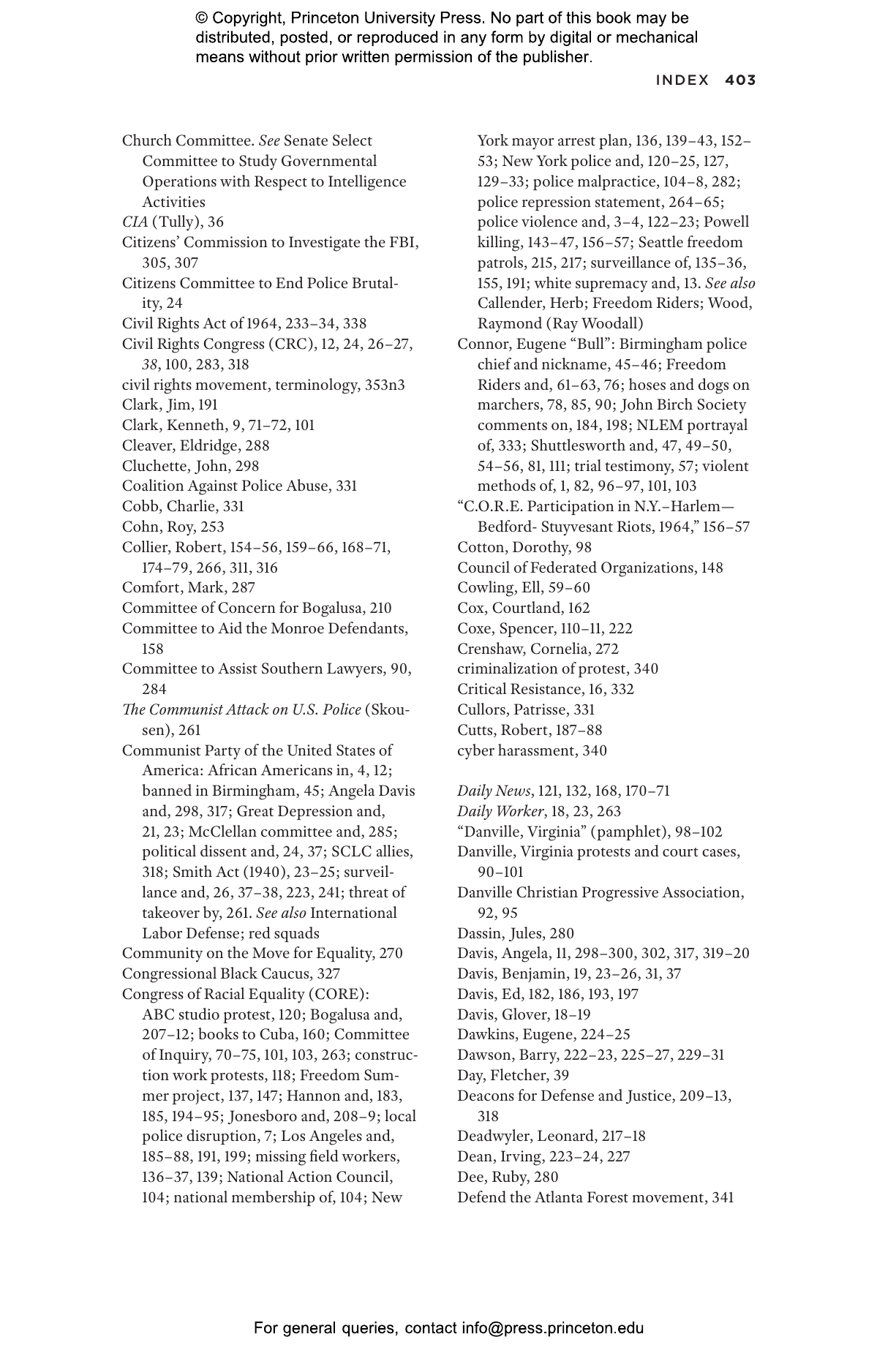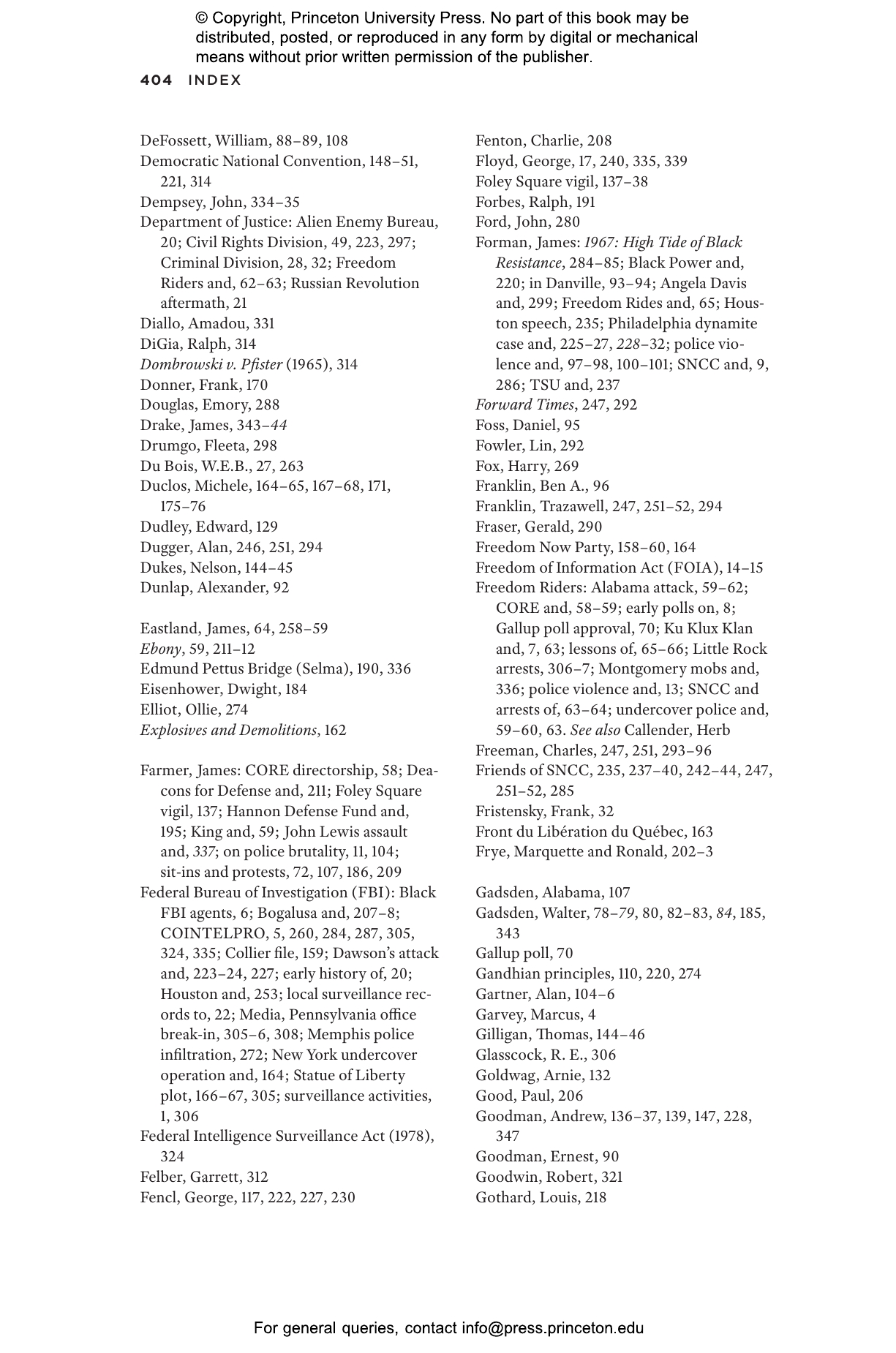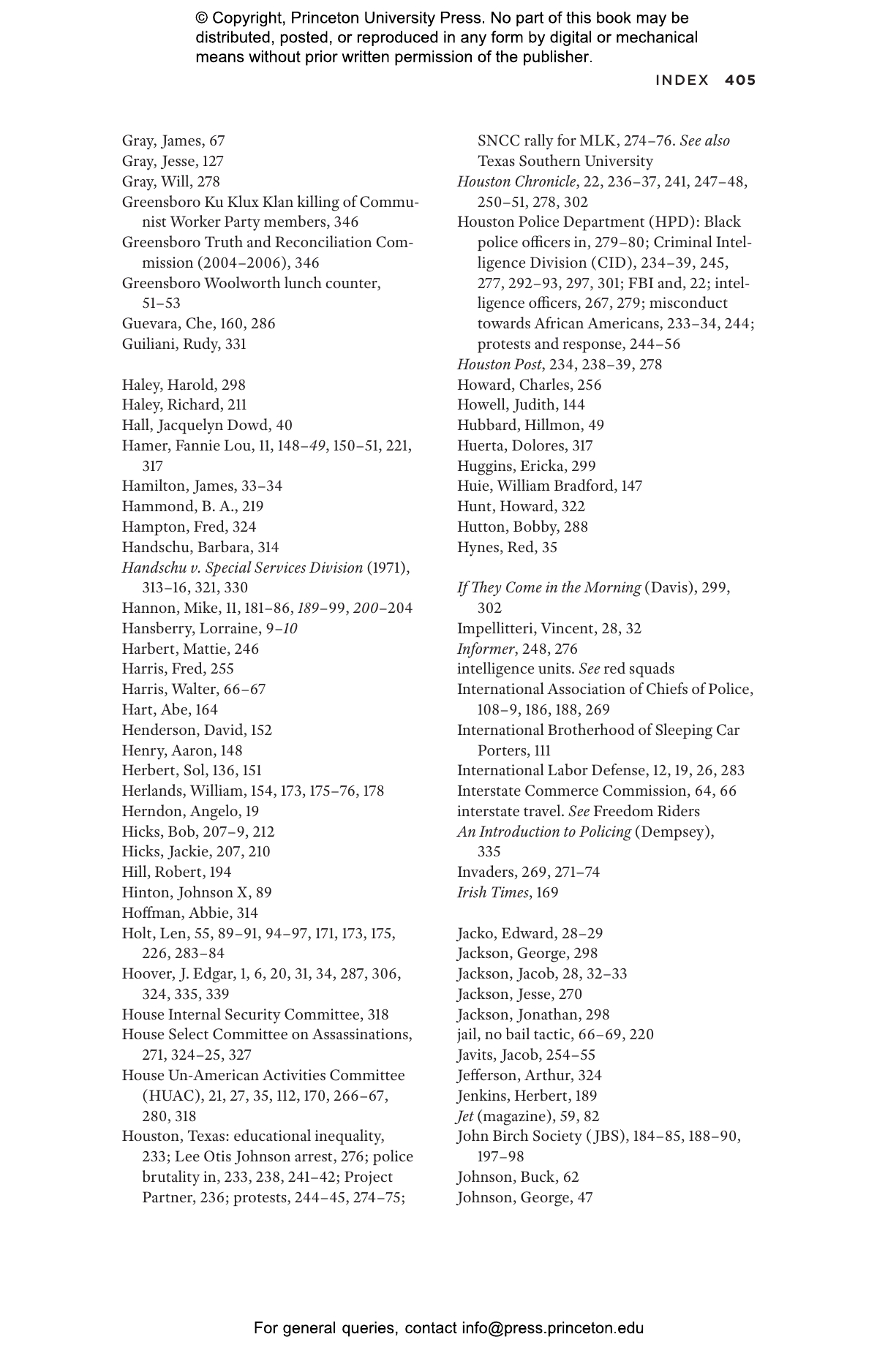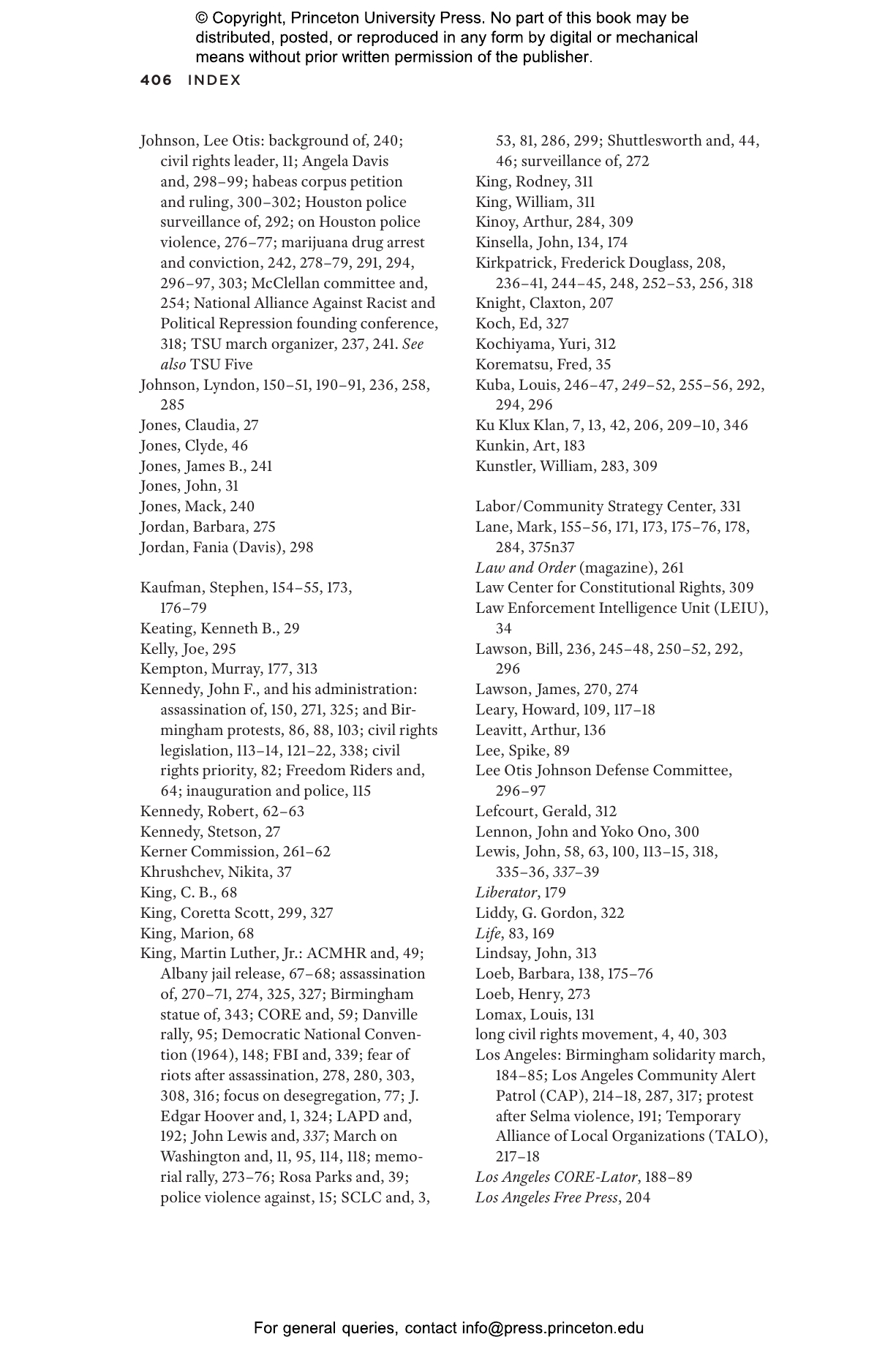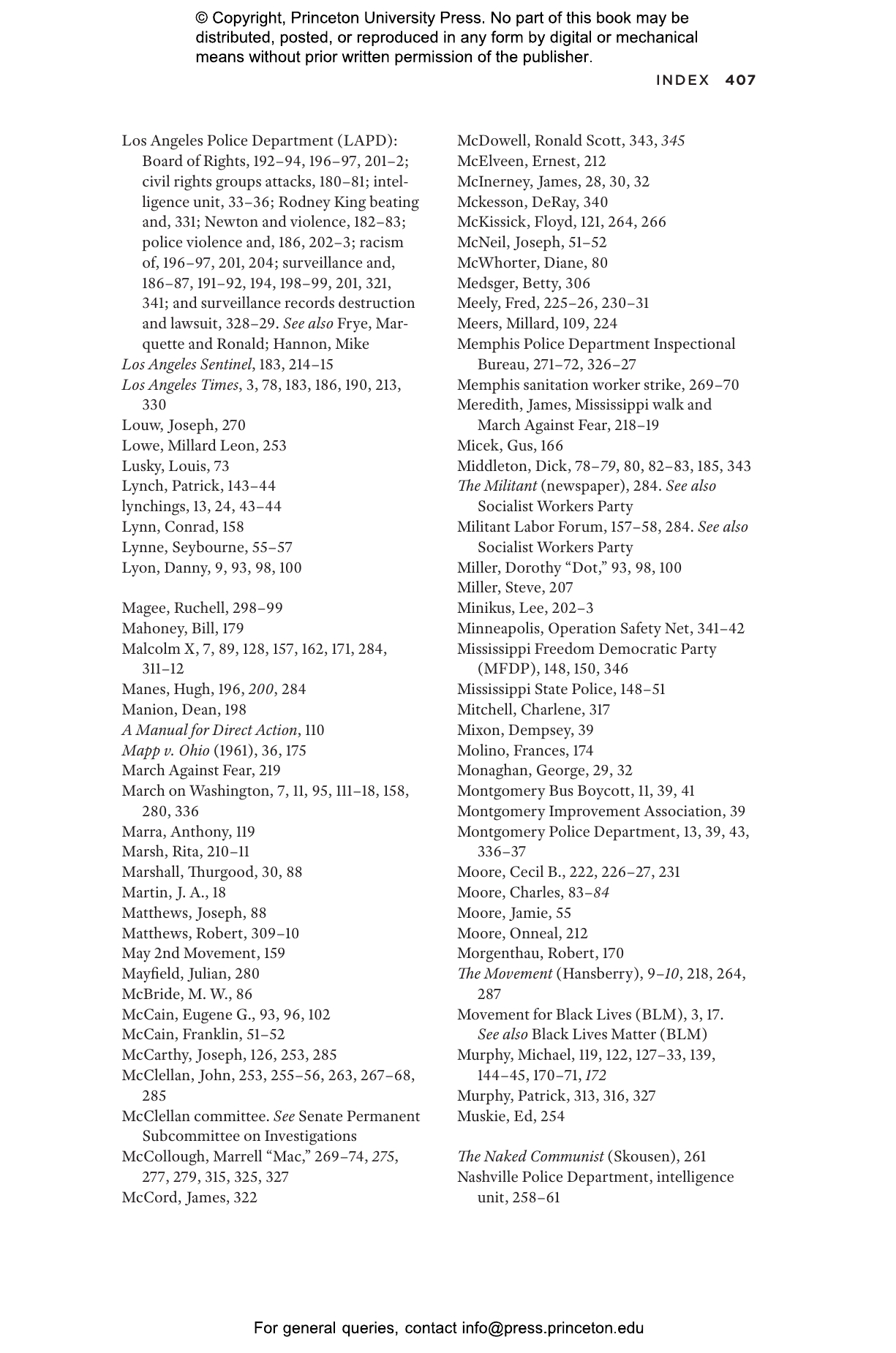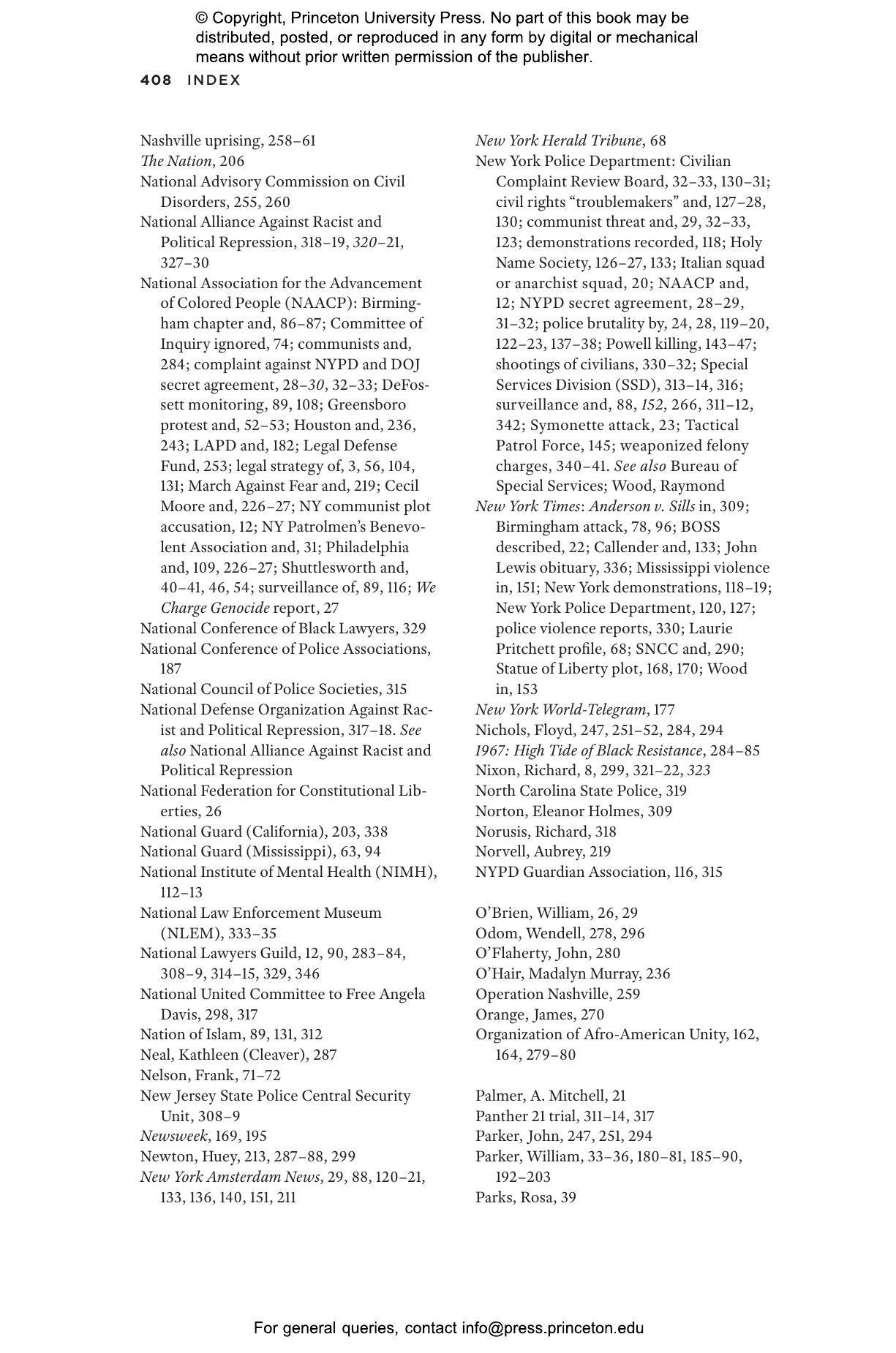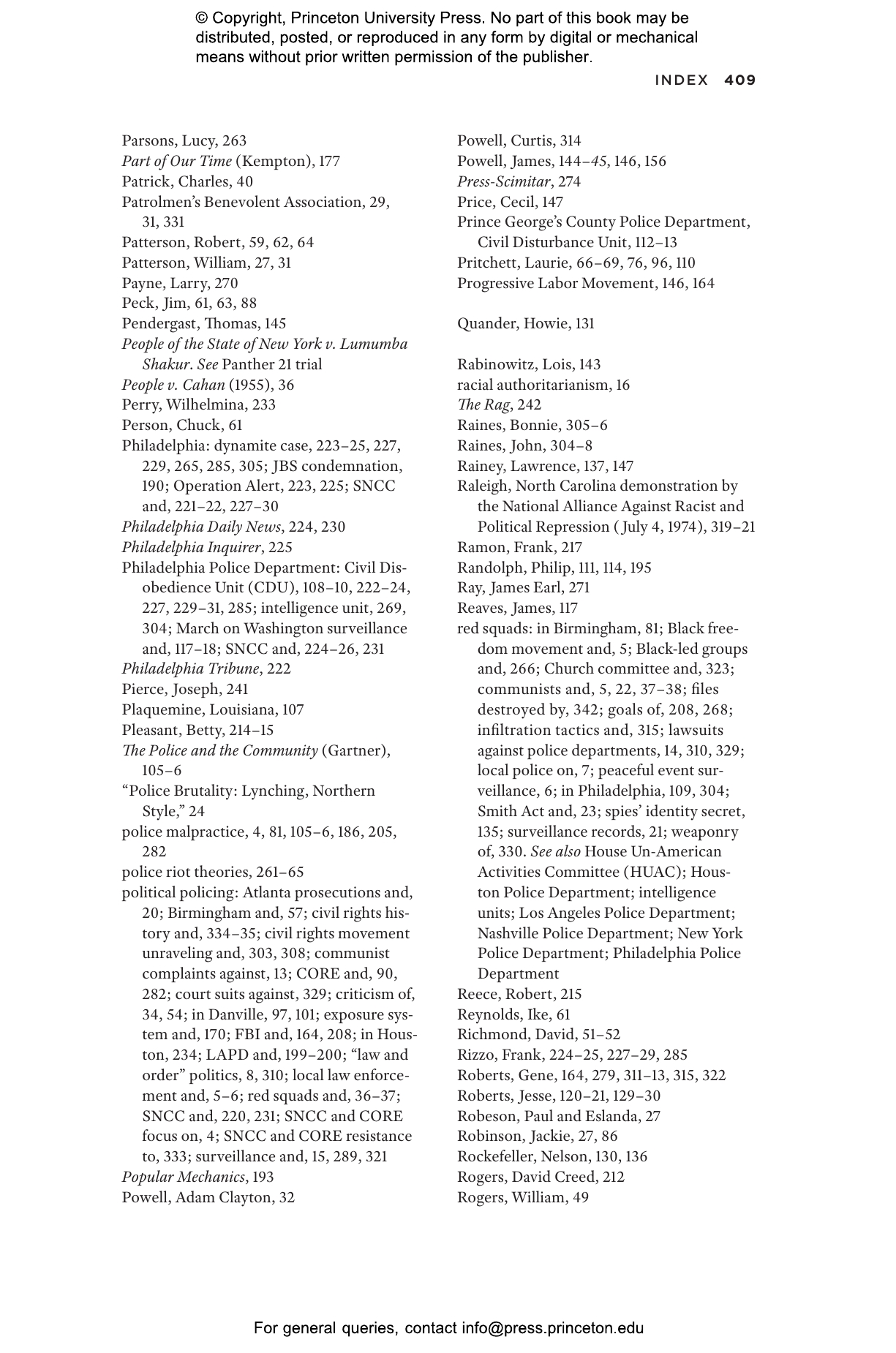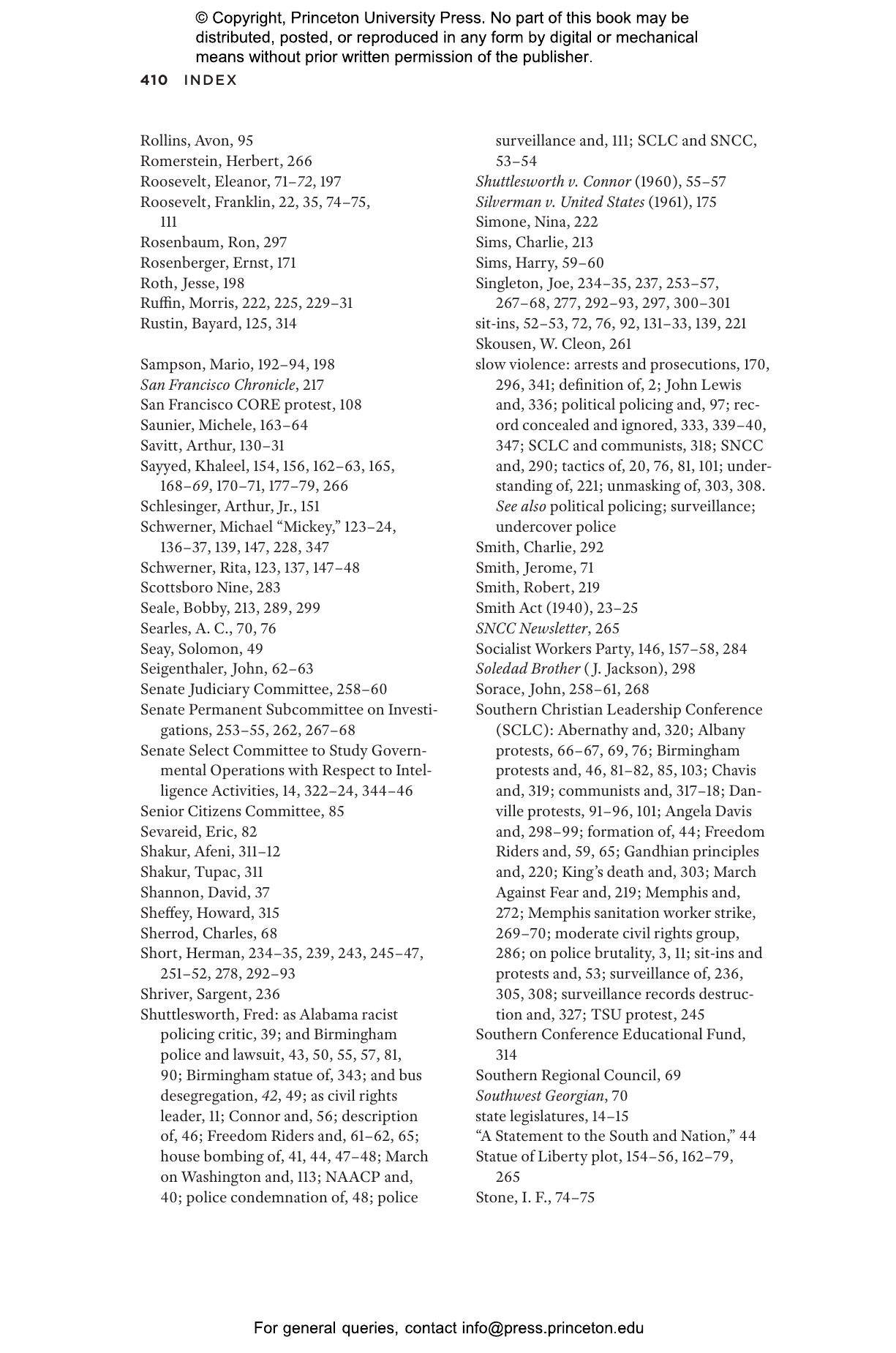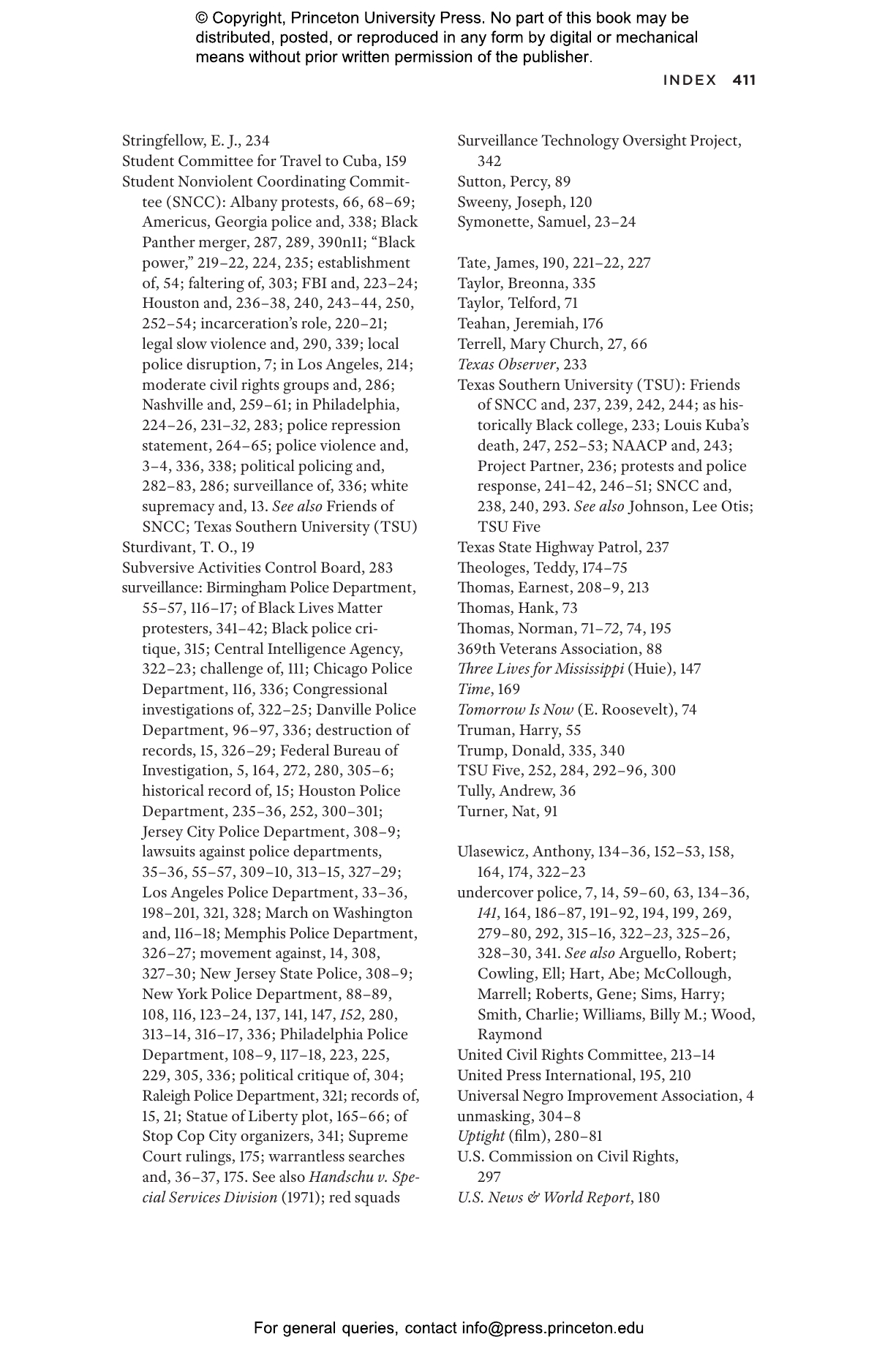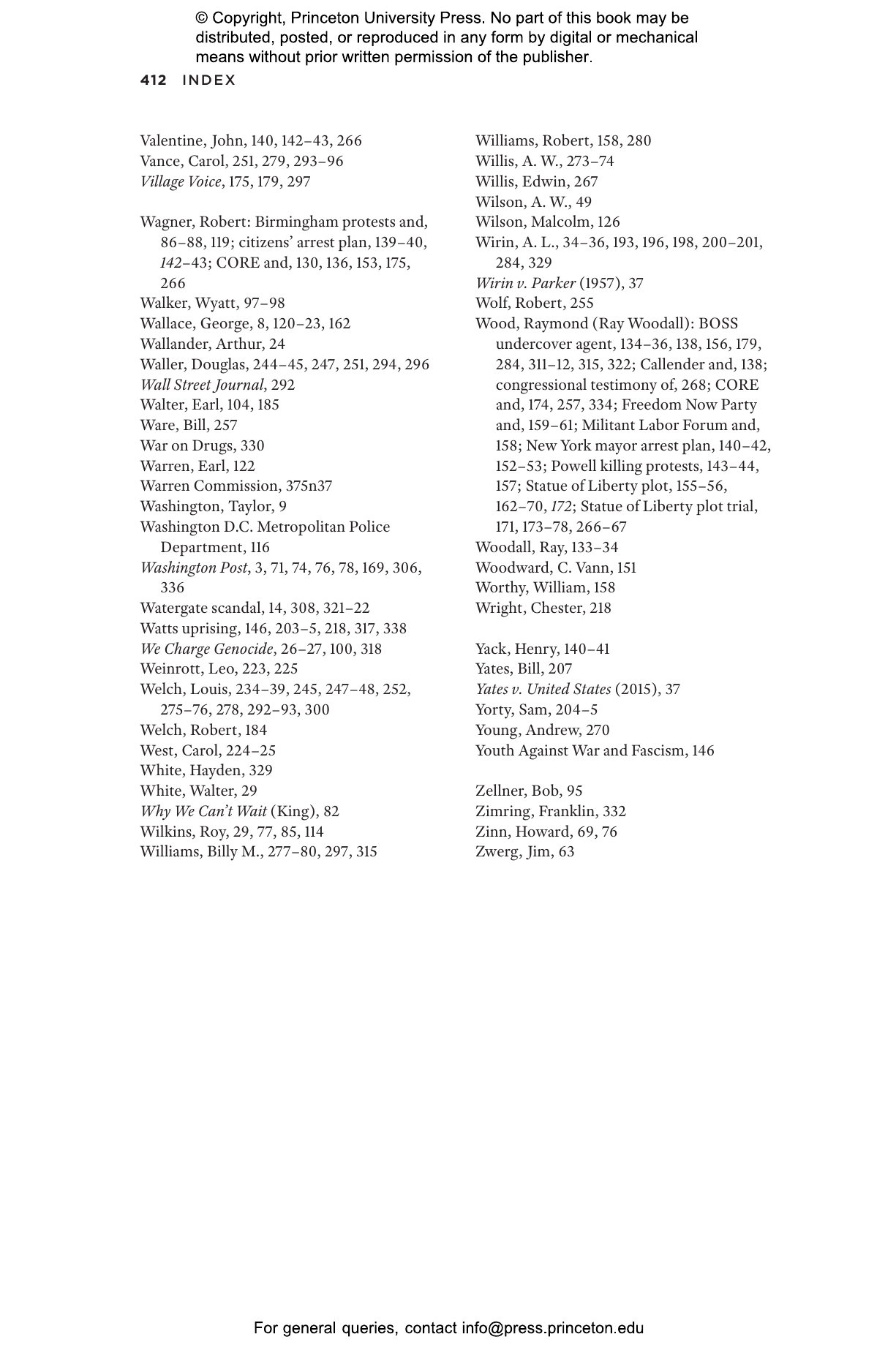Police Against the Movement shatters one of the most pernicious myths about the 1960s: that the civil rights movement endured police violence without fighting it. Instead, as Joshua Clark Davis shows, activists from the Congress of Racial Equality and the Student Nonviolent Coordinating Committee confronted police abuses head-on, staging sit-ins at precinct stations, picketing outside department headquarters, and blocking city streets to protest officer misdeeds. In return, organizers found themselves the targets of overwhelming political repression in the form of police surveillance, infiltration by undercover officers, and retaliatory prosecutions aimed at discrediting and derailing their movement.
The history of the civil rights era abounds with accounts of physical brutality by county sheriffs and tales of political intrigue and constitutional violations by FBI agents. Turning our attention to municipal officials in cities and towns across the US—North, South, East, and West—Davis reveals how local police bombarded civil rights organizers with an array of insidious weapons. More than just physical violence, these economic, legal, and reputational attacks were designed to project the illusion of color-blind law enforcement.
The civil rights struggle against police abuses is largely overlooked today, the victim of a willful campaign by local law enforcement to erase their record of repression. By placing activism against state violence at the center of the civil rights story, Police Against the Movement offers critical insight into the power of political resistance in the face of government attacks on protest.
Joshua Clark Davis is associate professor of history at the University of Baltimore. He is the author of From Head Shops to Whole Foods and the coeditor of Baltimore Revisited, and he has written for The Nation, Slate, Jacobin, and The Atlantic.
33037
"Police Against the Movement is a stark and horrifying look at the range of police abuses and the ways dissent continues to be suppressed. It’s an important book."—Eleanor J. Bader, The Progressive
“This is a civil rights story that few know. Throughout the twentieth and twenty-first centuries, Americans built potent grassroots movements to make this nation a more just society. Police attempts to shut down their efforts have been relentless and consistently denied and covered up. But there has always been determined activism to counter such police abuse, and to demand accountability. Joshua Clark Davis has rescued this history powerfully in this must-read book.”—Heather Ann Thompson, Pulitzer Prize–winning author of Blood in the Water: The Attica Prison Uprising of 1971 and Its Legacy
“Deeply researched and written in lively prose, Police Against the Movement takes us beyond federal surveillance to examine the local police departments across America that infiltrated and provoked activists in the Black freedom struggle. And the movement fought back, seeing no difference between police brutality and the slow death of legal surveillance, entrapment, and mass arrests in Black communities. This is a revealing history of political policing and police repression.”—Naomi Murakawa, 91ÌÒÉ« University, author of The First Civil Right
“When I was a child, my parents—both civil rights organizers—shared their suspicions that police were spying on our family and trying to destroy the Black freedom movement. In brilliant, harrowing detail, Joshua Clark Davis reveals how right they were. This lucid account exposes a chapter of American history that many hope to hide but is more relevant than ever in today’s political climate.”—James Forman, Jr., Professor at Yale Law School and Pulitzer Prize–winning author of Locking Up Our Own
“This gripping book provides a kaleidoscopic look at the foundational role that policing—and its opposition—played in the modern civil rights movement. Joshua Clark Davis provides an invaluable service in restoring the local police department to its rightful place as a fundamental barrier to racial justice across the nation. An excellent book, smartly told and rife with lessons for the present.”—Dan Berger, author of Stayed on Freedom: The Long History of Black Power Through One Family’s Journey


